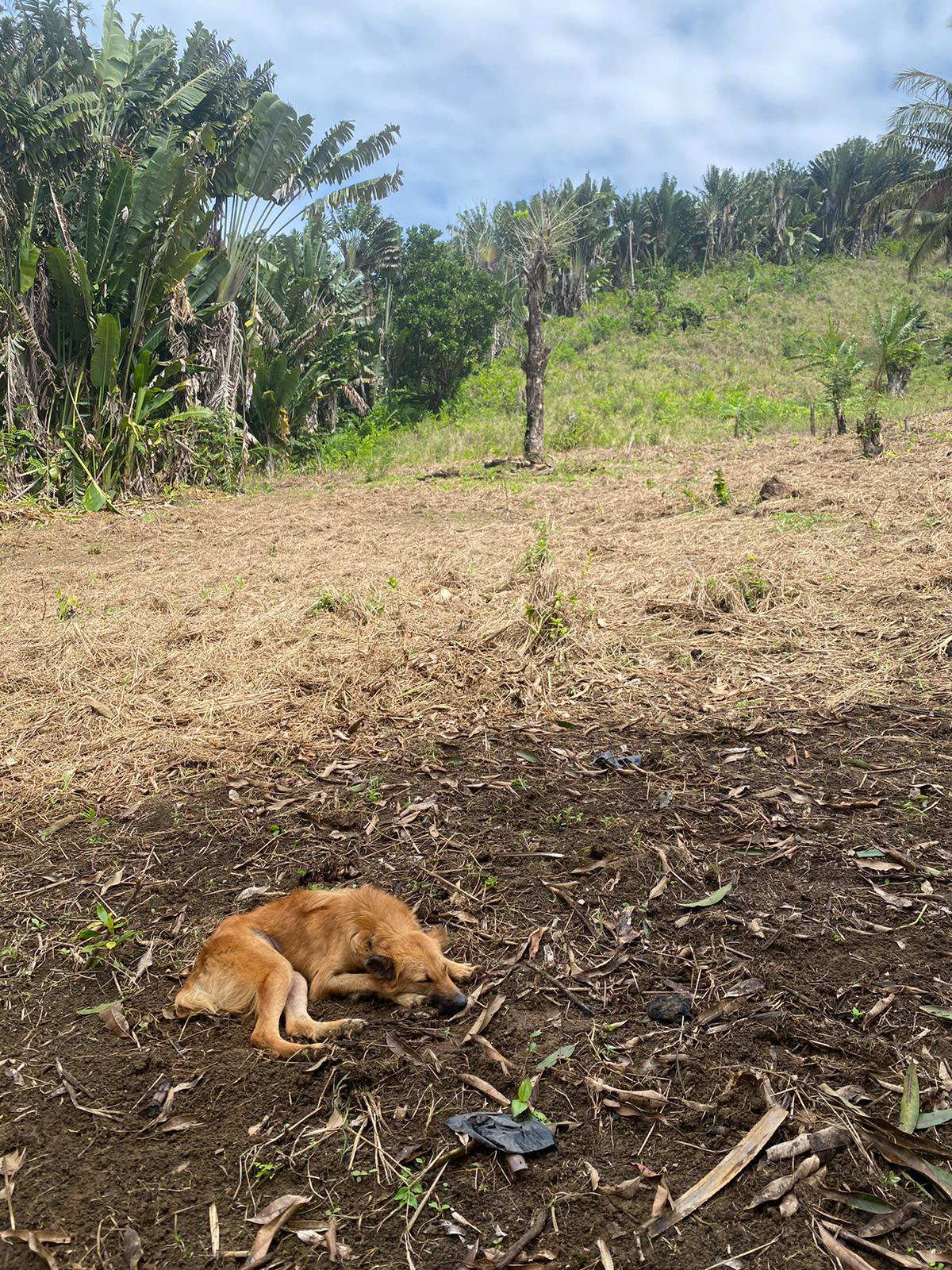
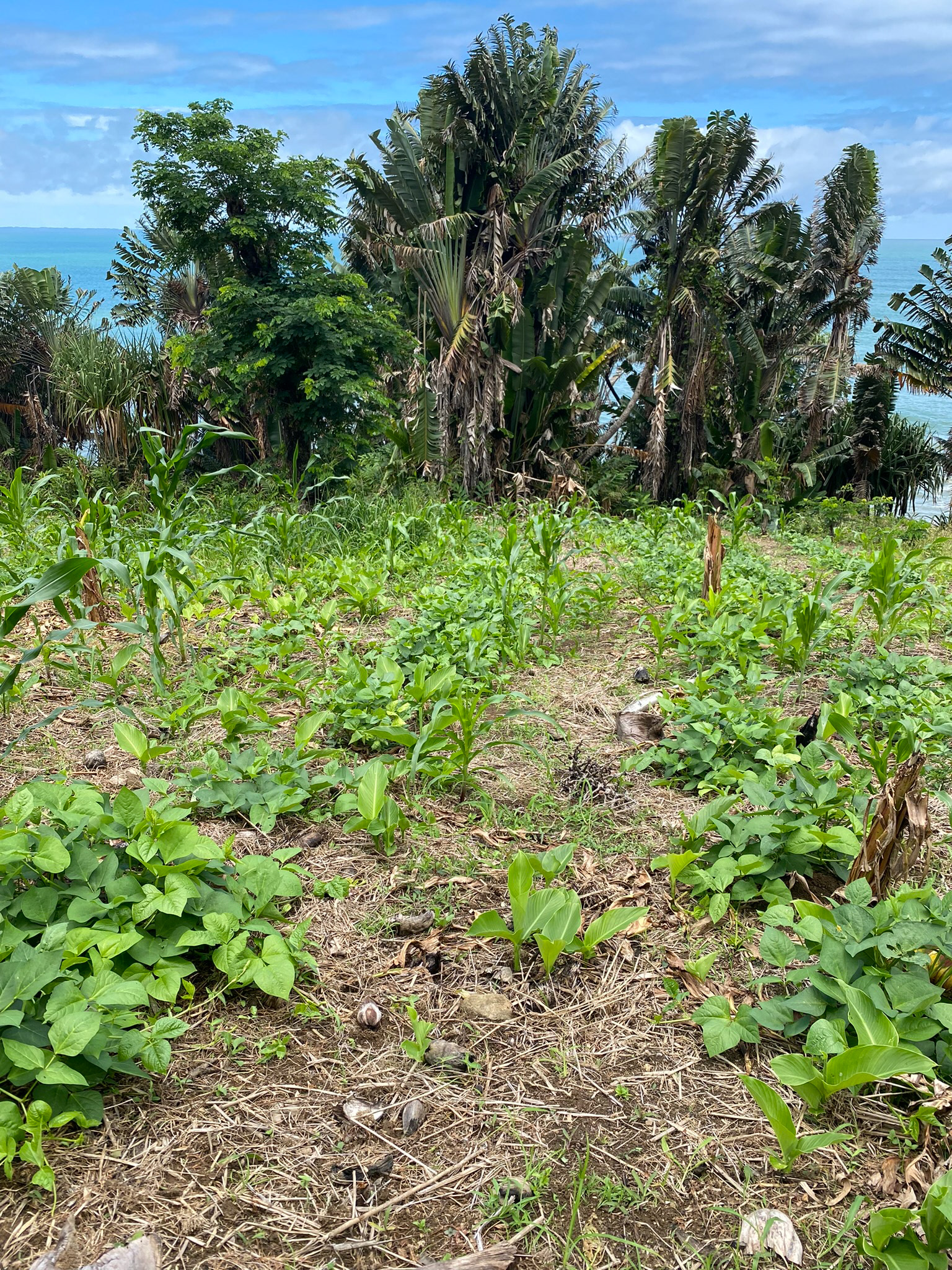
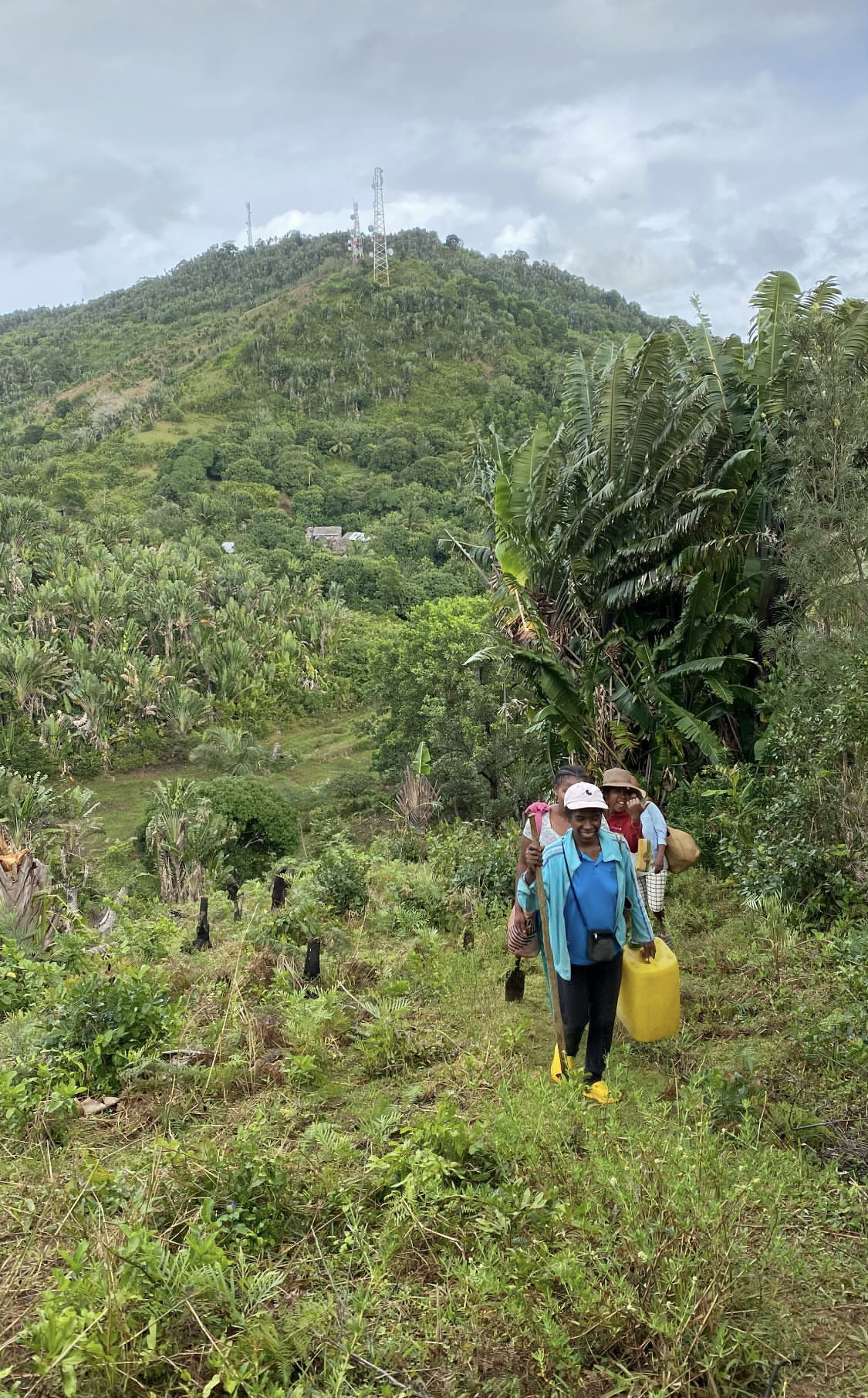
I was invited to join a women's farming group that owns a large amount of lannd in the countryside. They are interested in growing vegetables to sell to support their children as a main souce of income. I am honored that they have invited me to join them on their endeavors, teaching them composting techniques and companion planting. Every day, we hike for an hour to their farm. So far, we have tilled 100+ square meters of land for growing crops and have started growing cow peas and corn. Fifi (my dog) loves joining us because he gets to run around the farm off leash and help make compost (generate poop).
Because most of their land is hillside, I trained the group on making an A-frame level to create contour lines for planting on their hills. A big issue on the east cost are the slash and burn efforts in which hills are deforested to grow crops. These crops are typically farmed for only a single season due to the method of randomly planting them in ways that don't combat erosion. What usually happens is that trees are chopped for profit and crops are grown for a season, stripping the land of their nutrients and loosening the soil, so farmers go on to cut down trees on other hills, continuing the cycle until they run out of land. With making contour lines, we are creating hillside plots that combat erosion and are compatible with long-term farming so that changing location is not necessary. More pictures of the hills post-contour-lines to come!
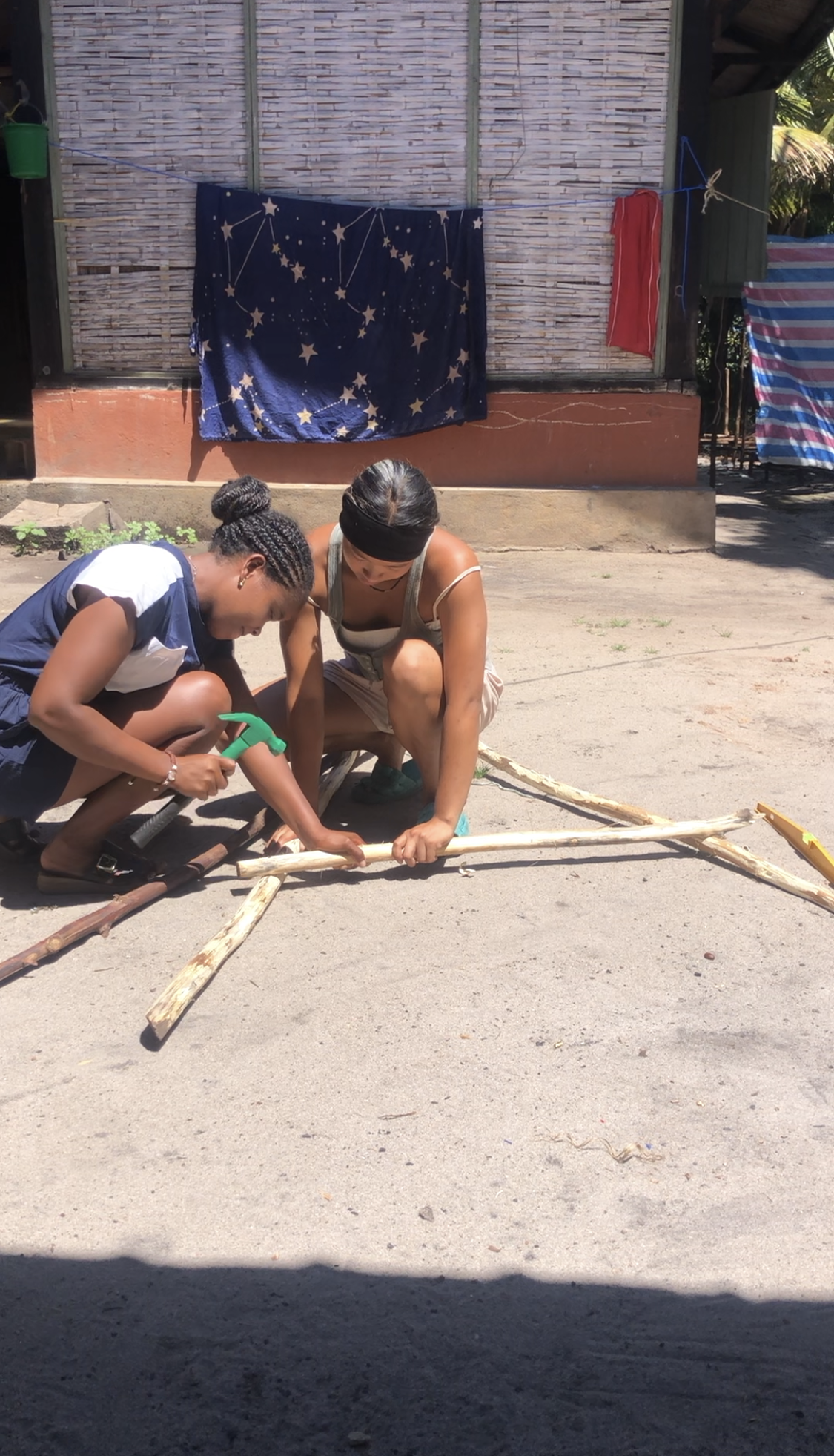
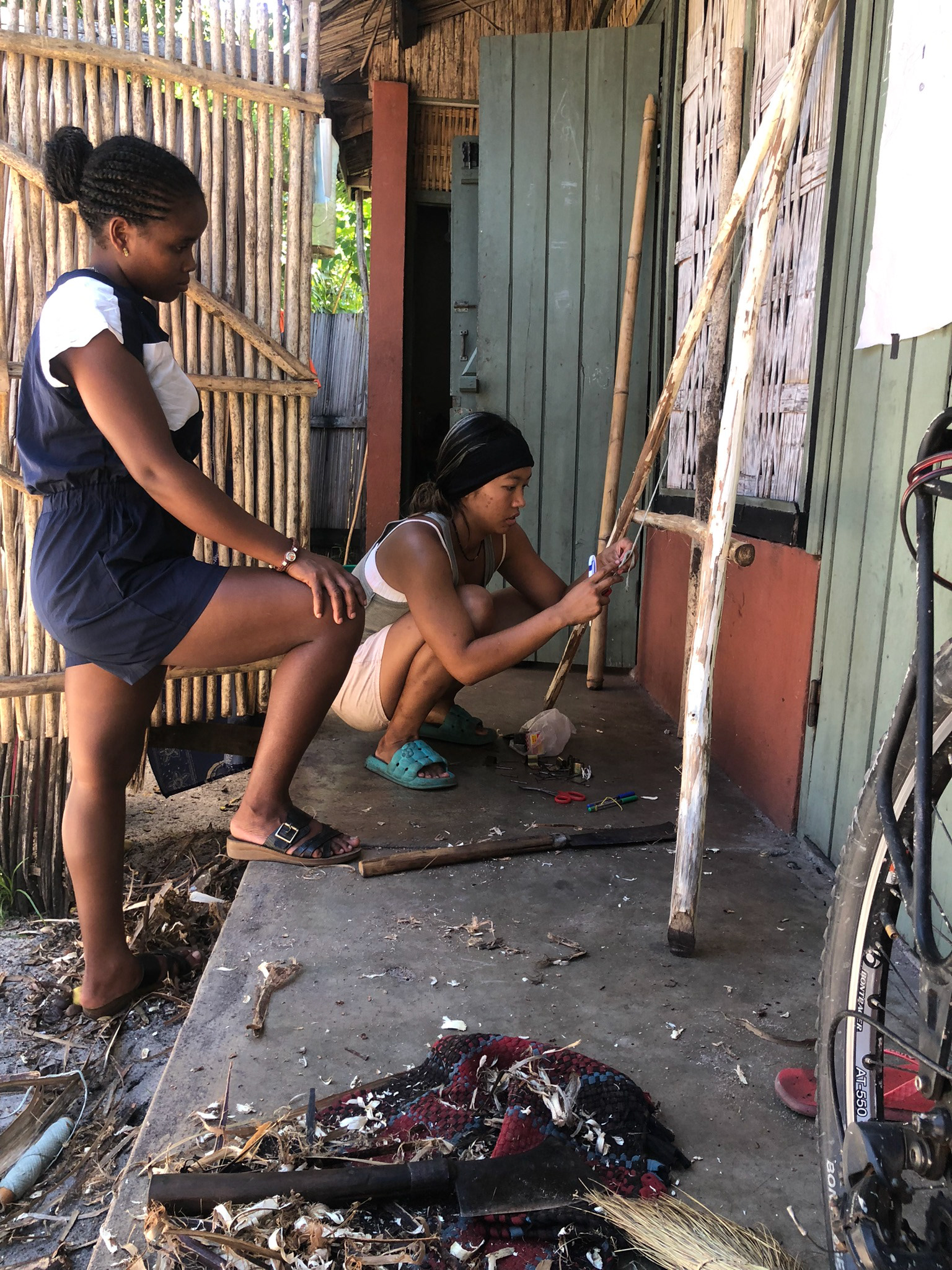
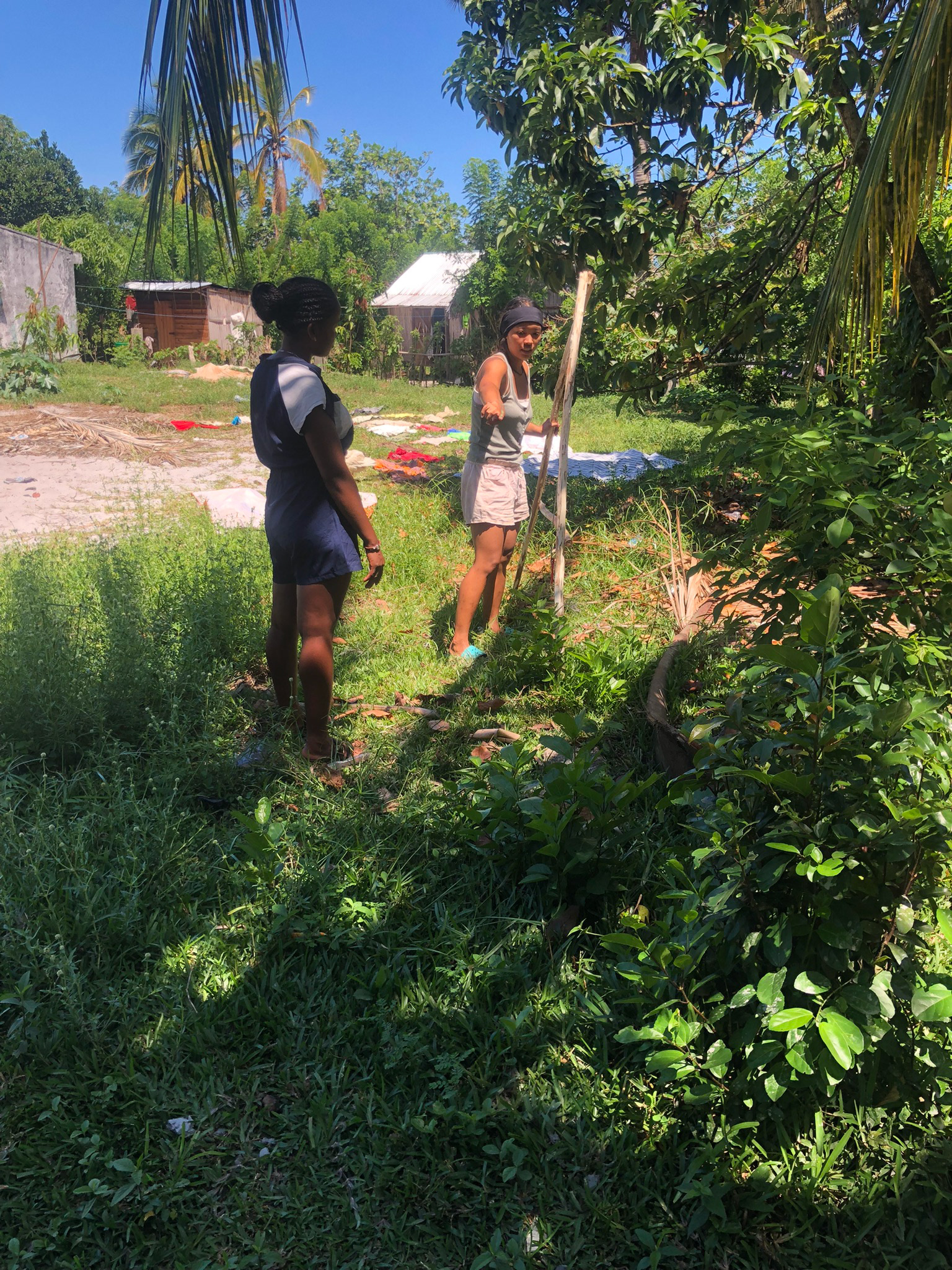
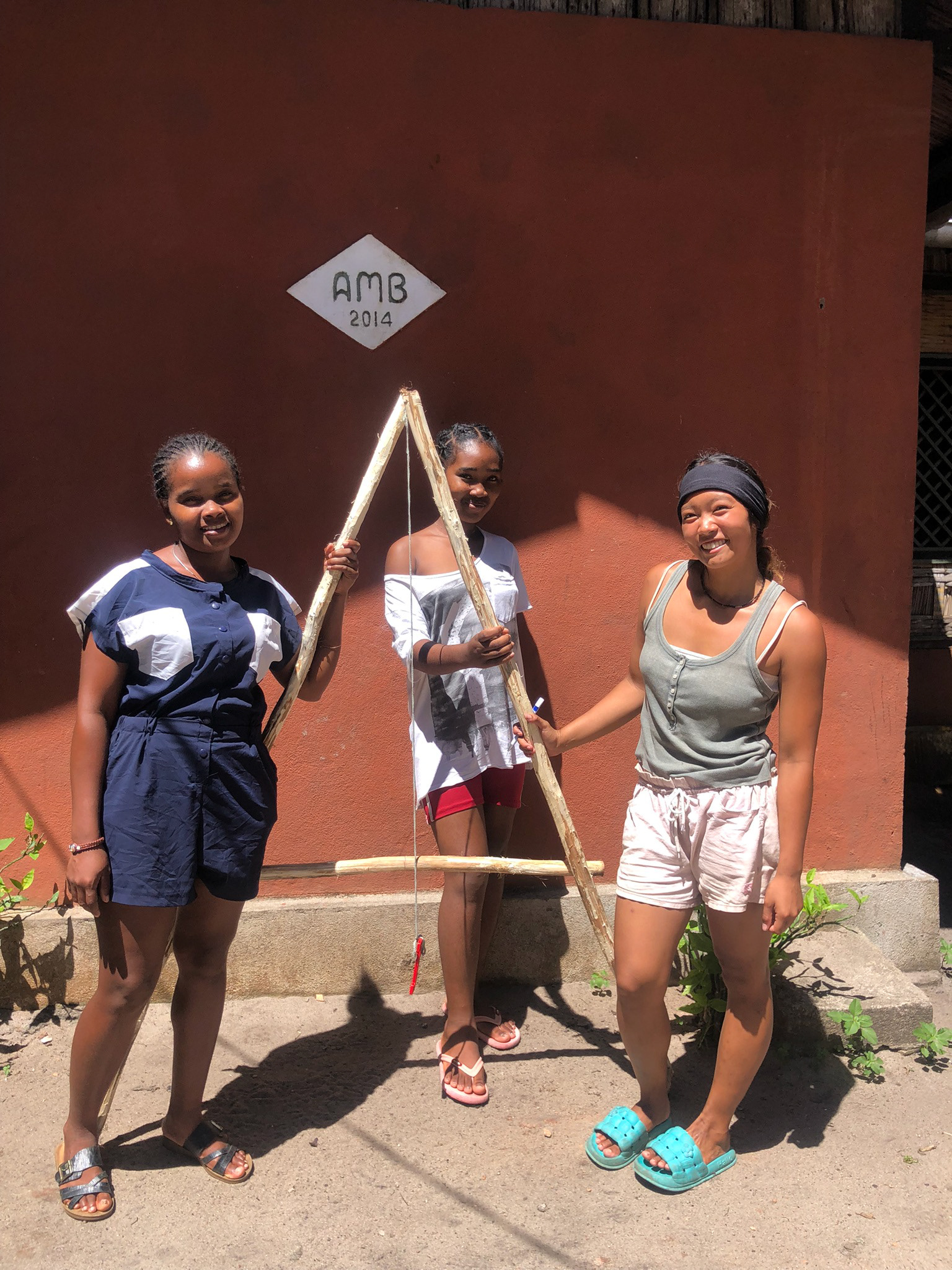


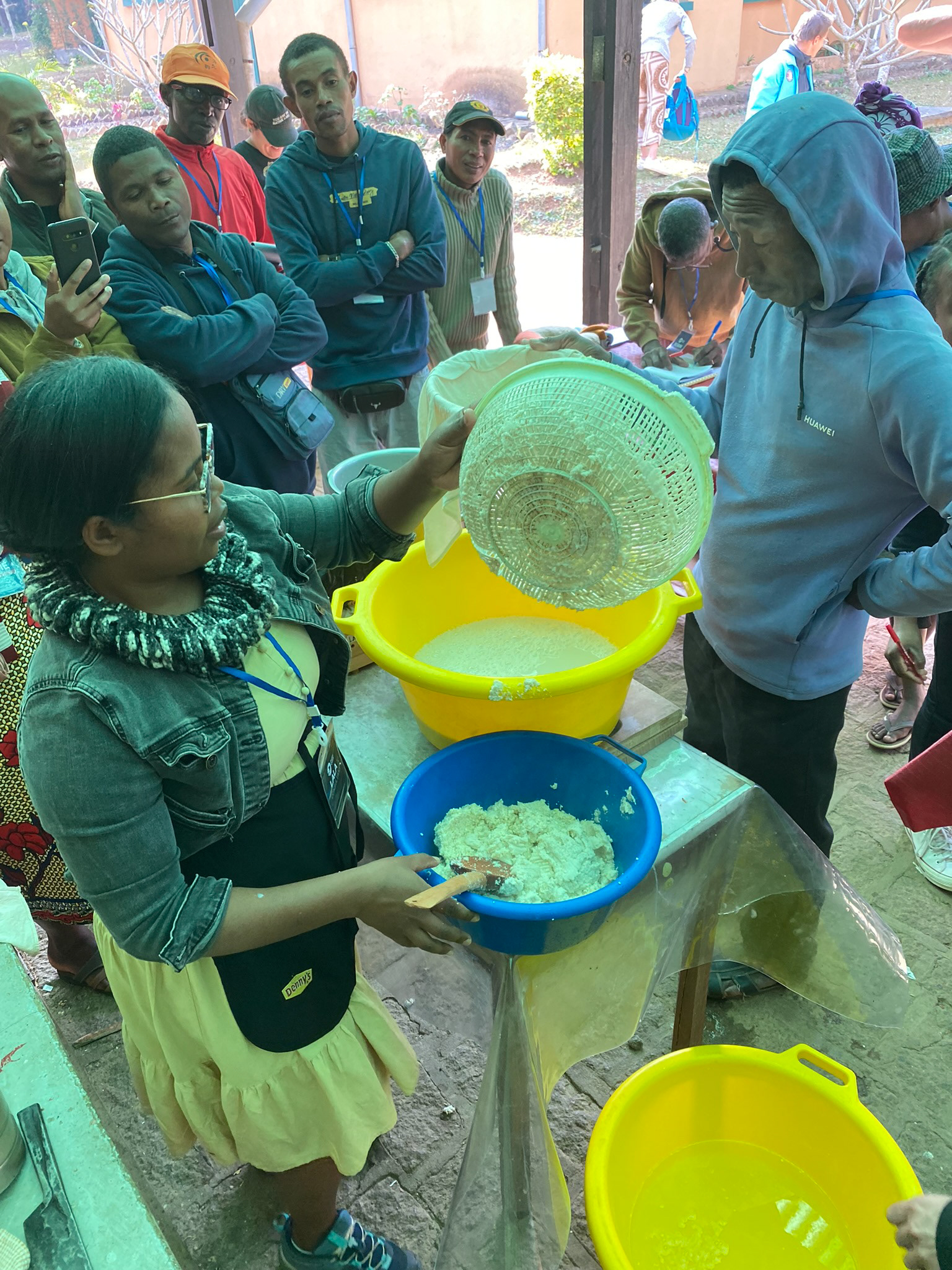
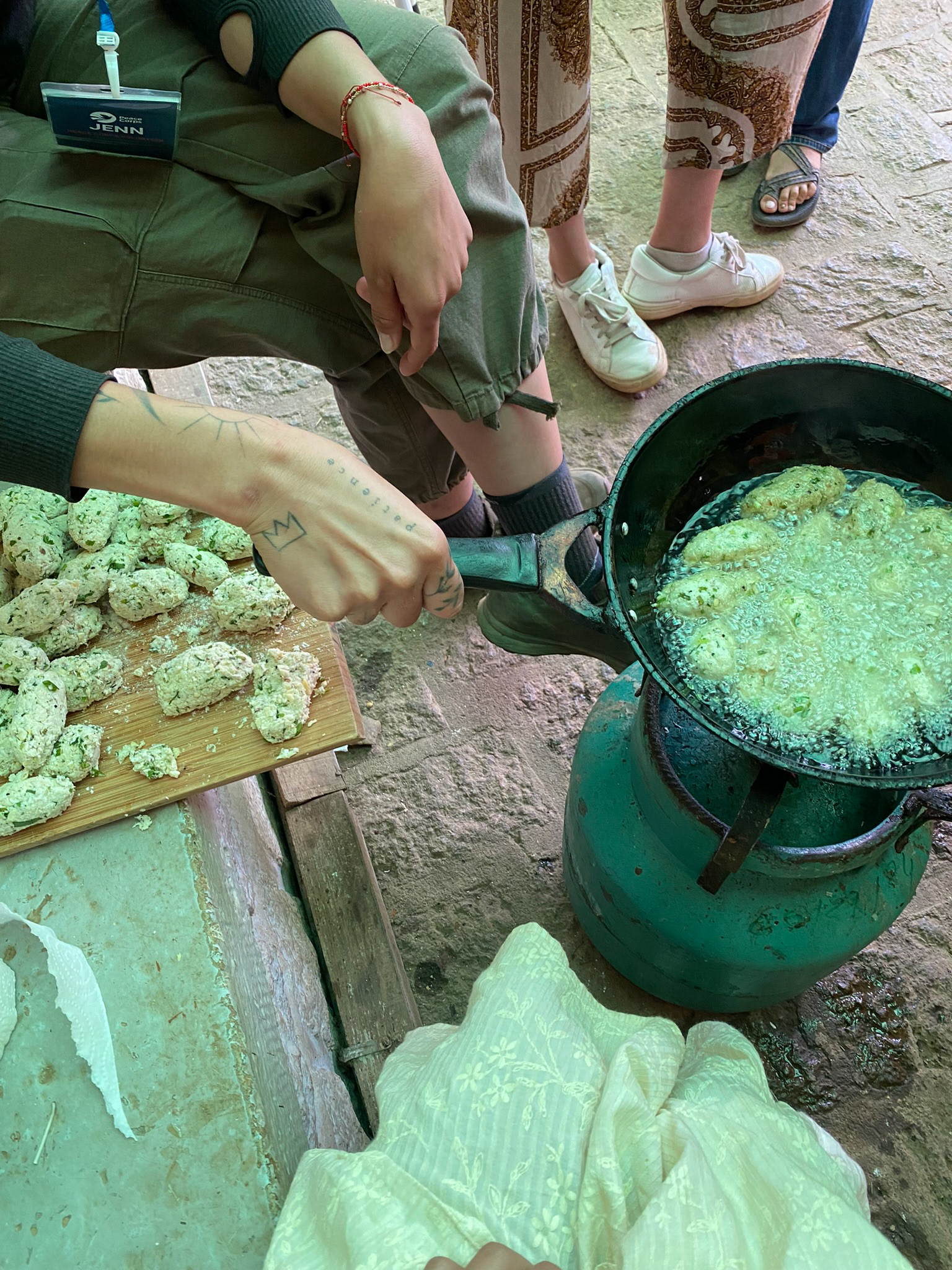
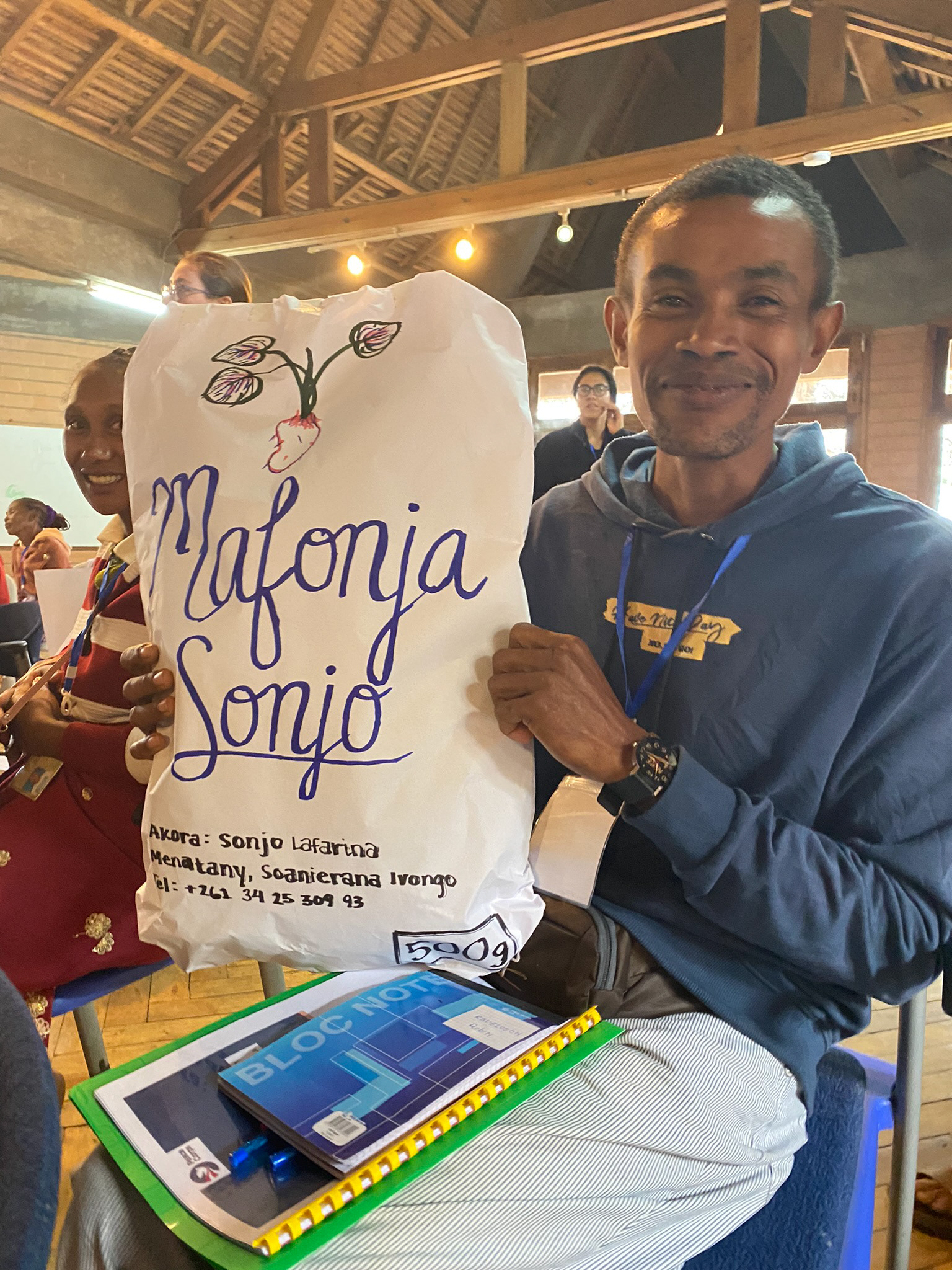
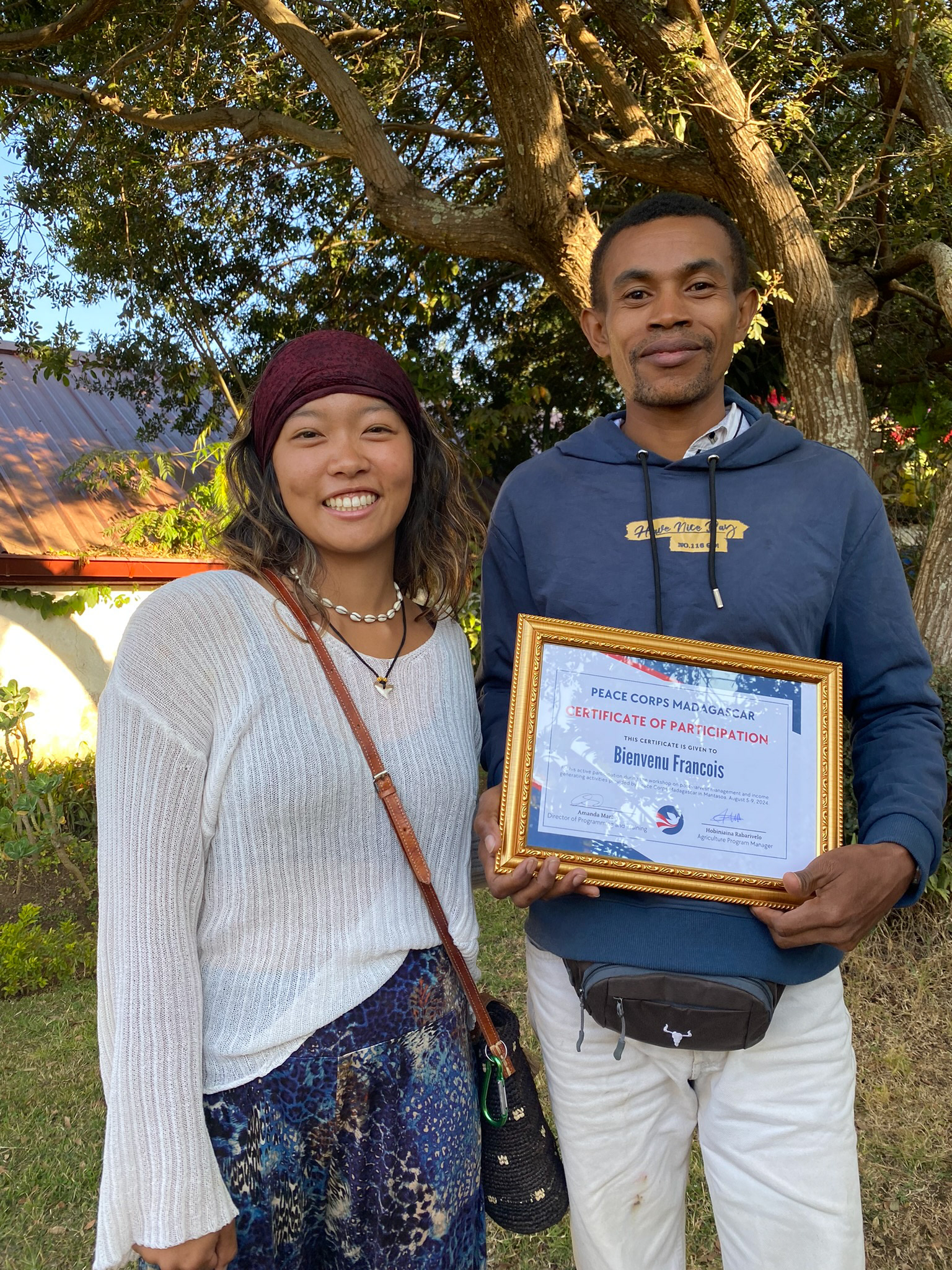
I had the wonderful opportunity to bring my host dad to an income generation and post-harvest managament training in Mantasoa, Tana. We learned how to preserve any surpluses of food grown and how to make them into healthy products to be sold (dried fruit, flour, syrup, jams, vinegar, packaged snacks).
I imlempented one of the techniques we learned, making a solar dryer for fruit! This layered device allows me speed up the process of drying lots of fruit at a time while also protecting them from rain and other pests that typically contaminate food that is left on open mats to dry. Dried mango has been particularly popular, so much so that people have been stealing it from my solar dryer. I see this as a positive thing as that means my product must be worth something. My best friend, Winnie, is currently experimenting with drying and selling other types of fruit. More updates on their marketing to come!
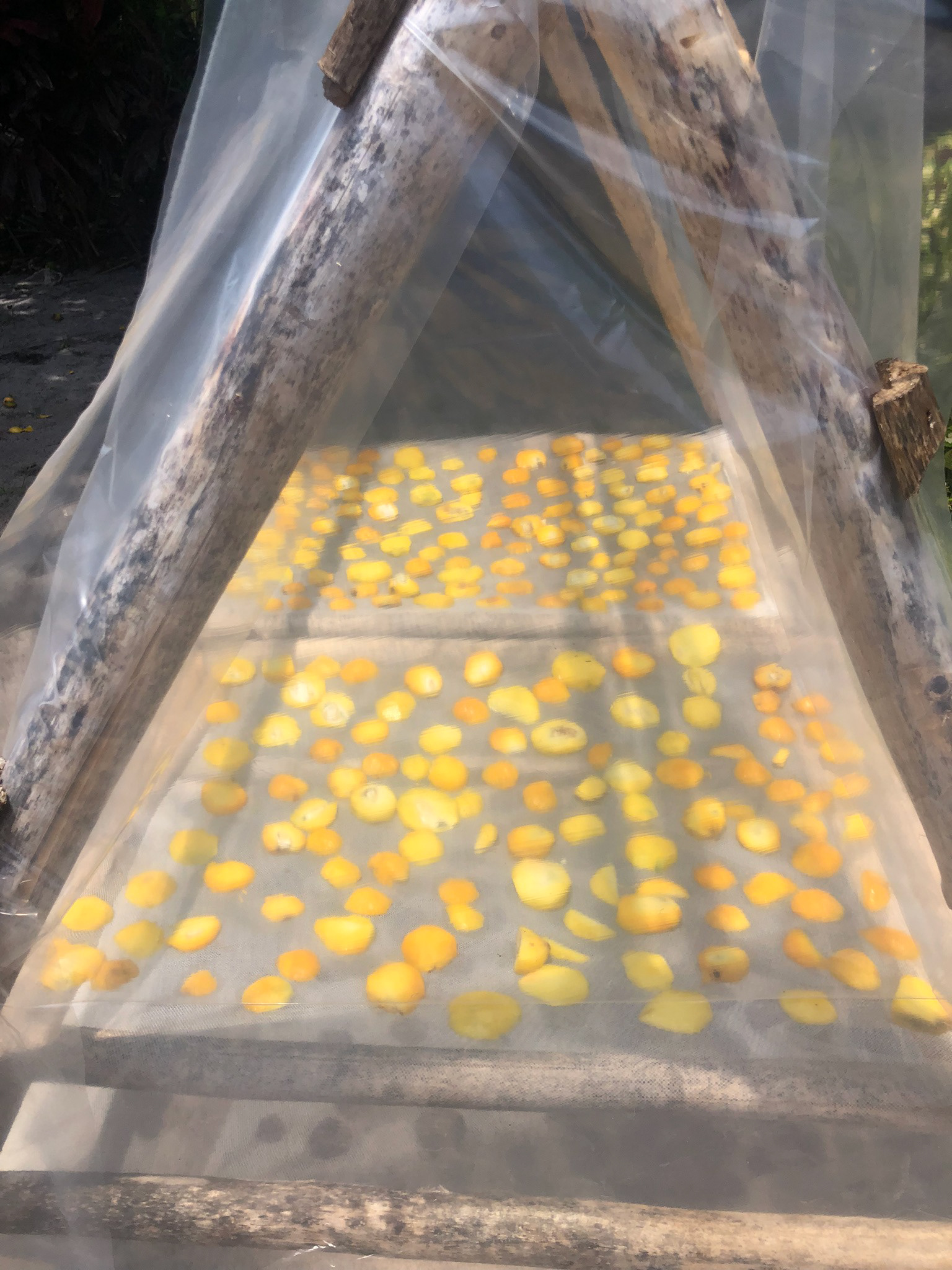
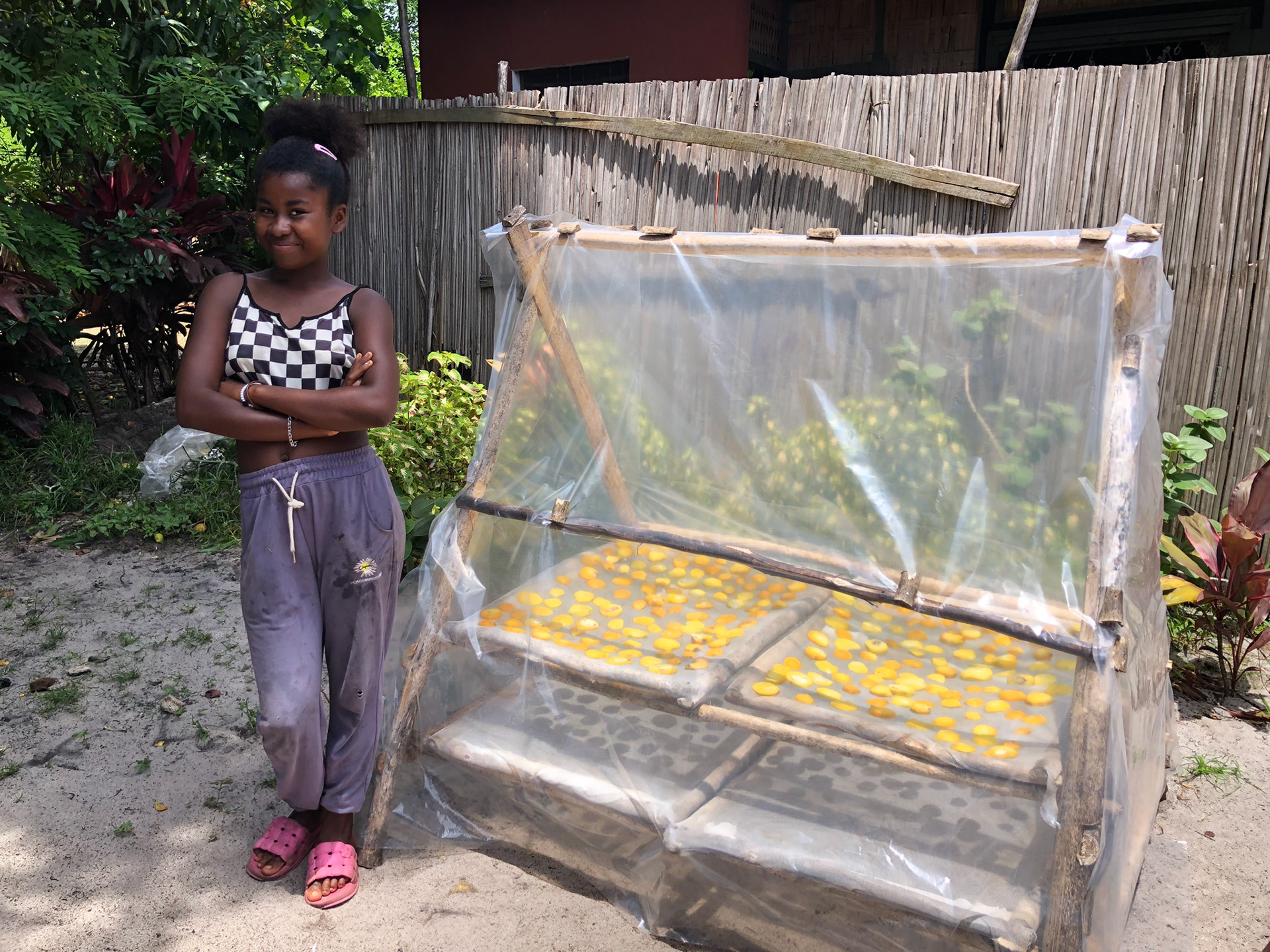
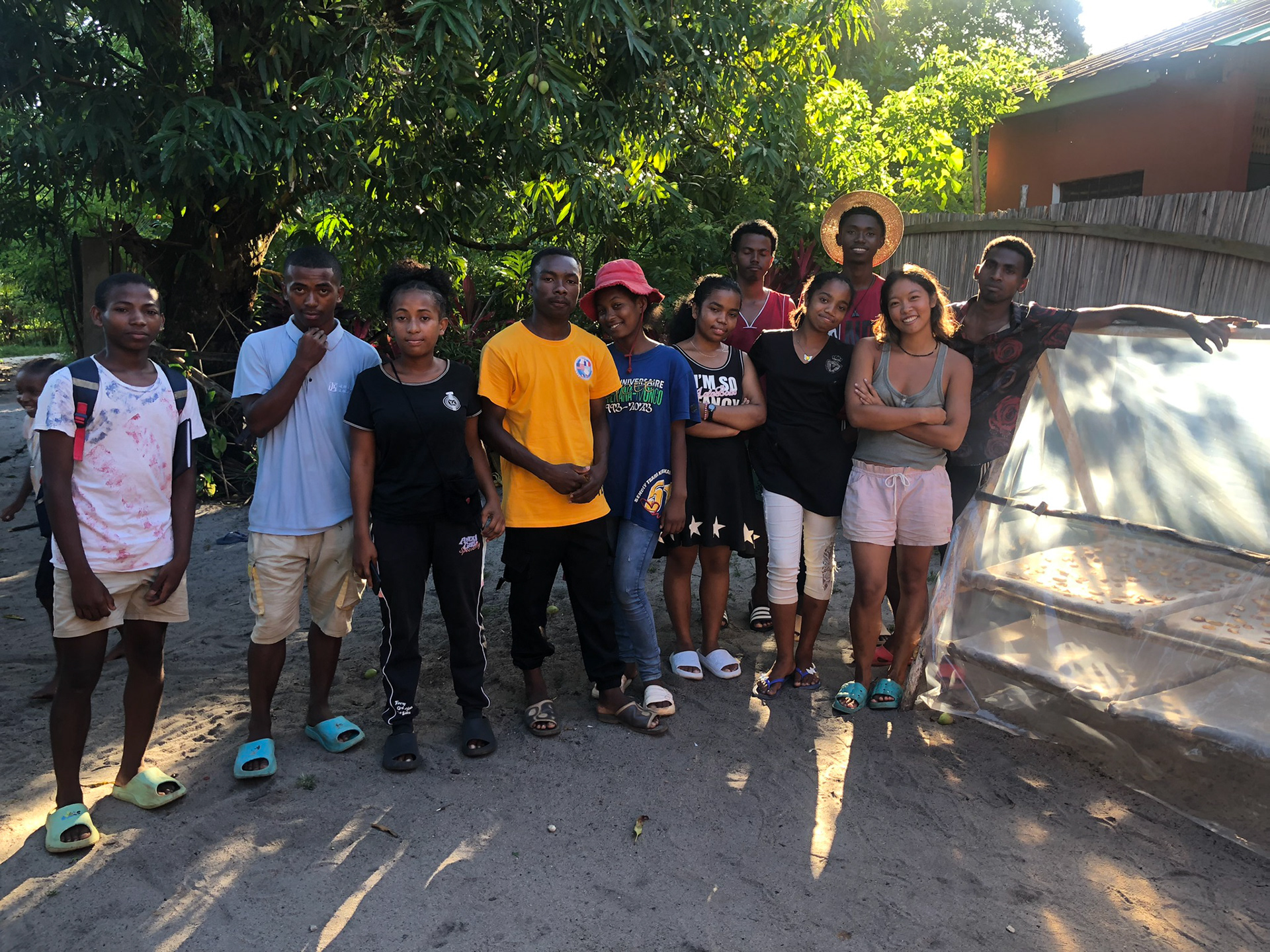
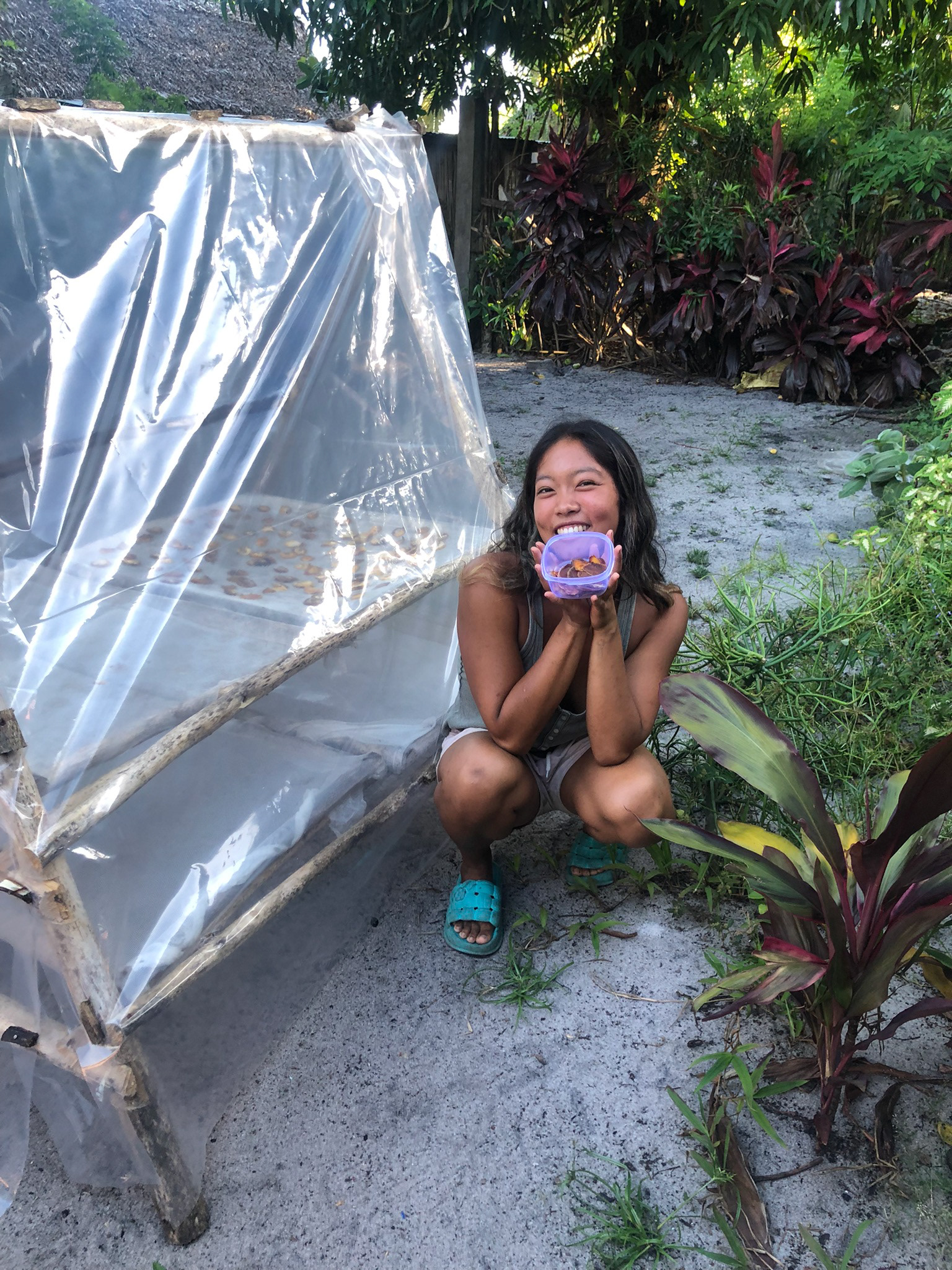
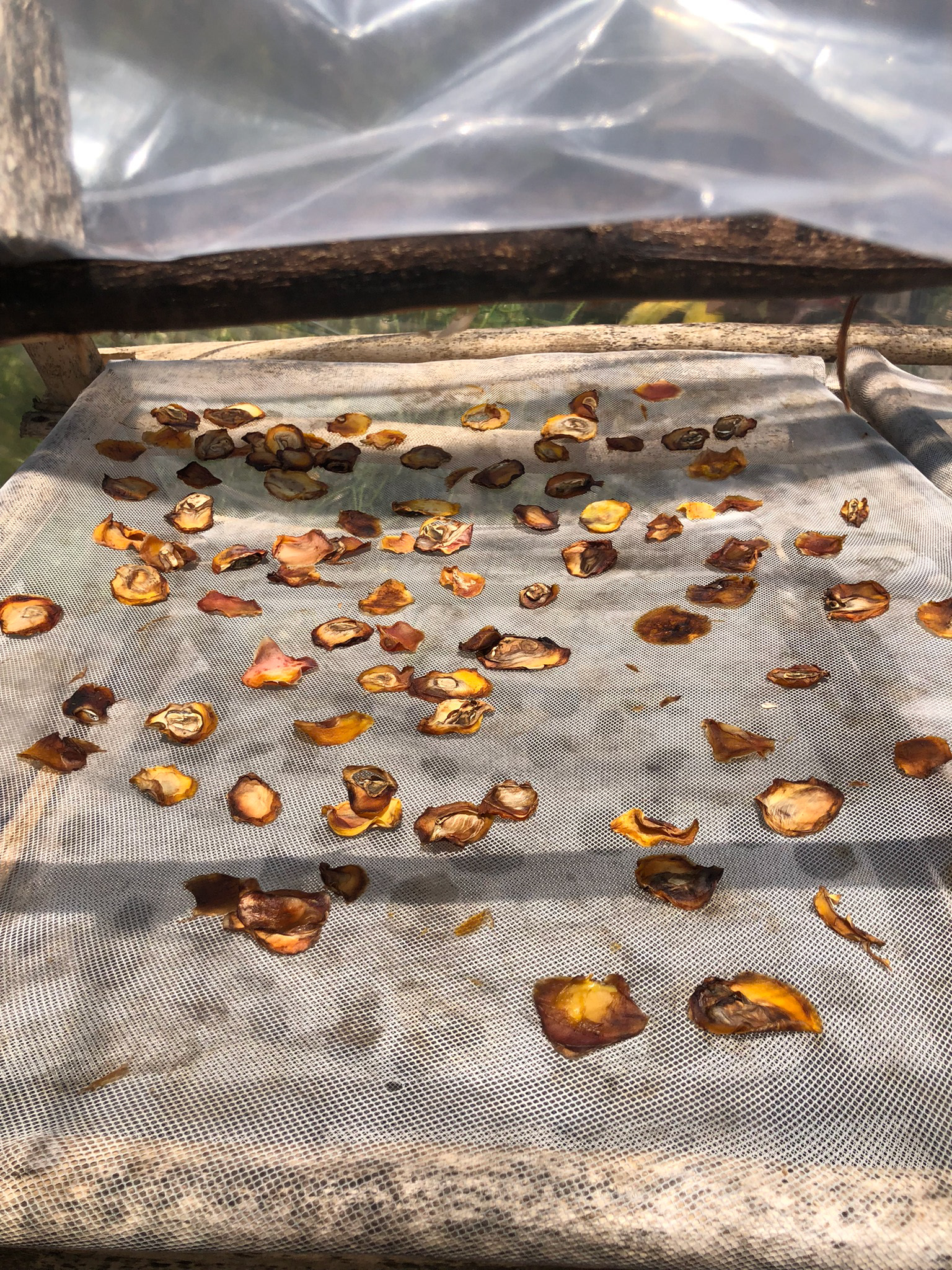
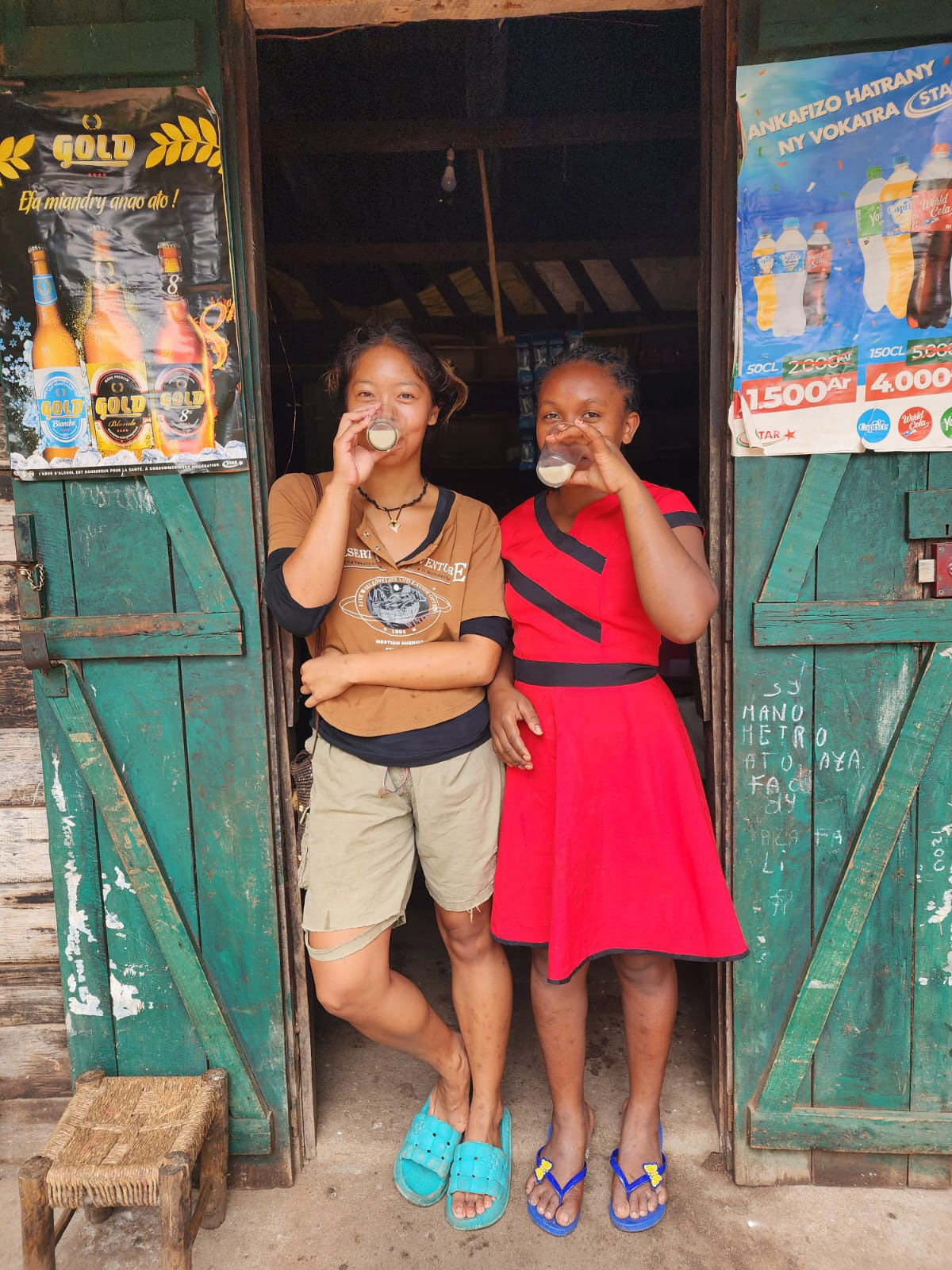
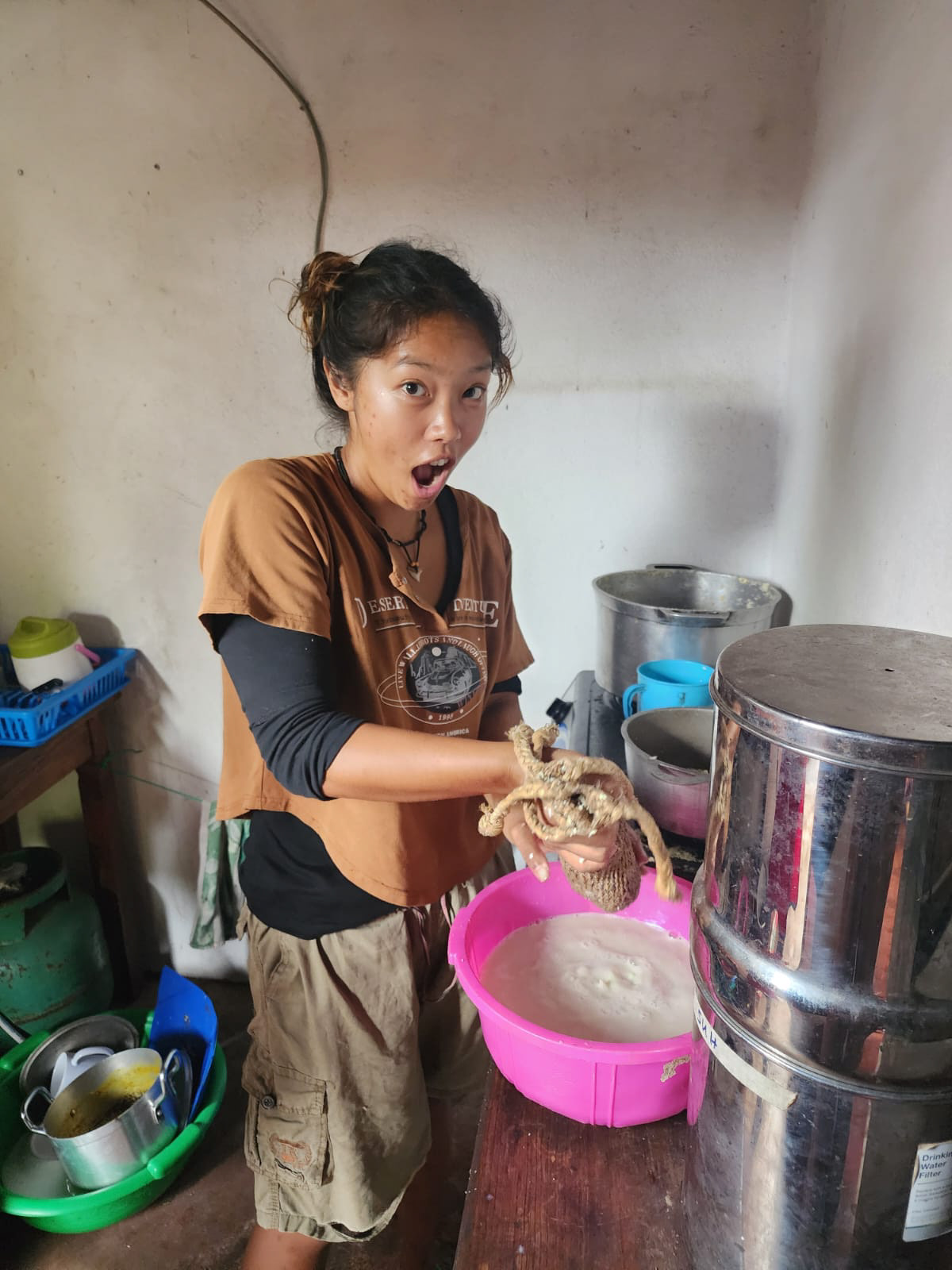
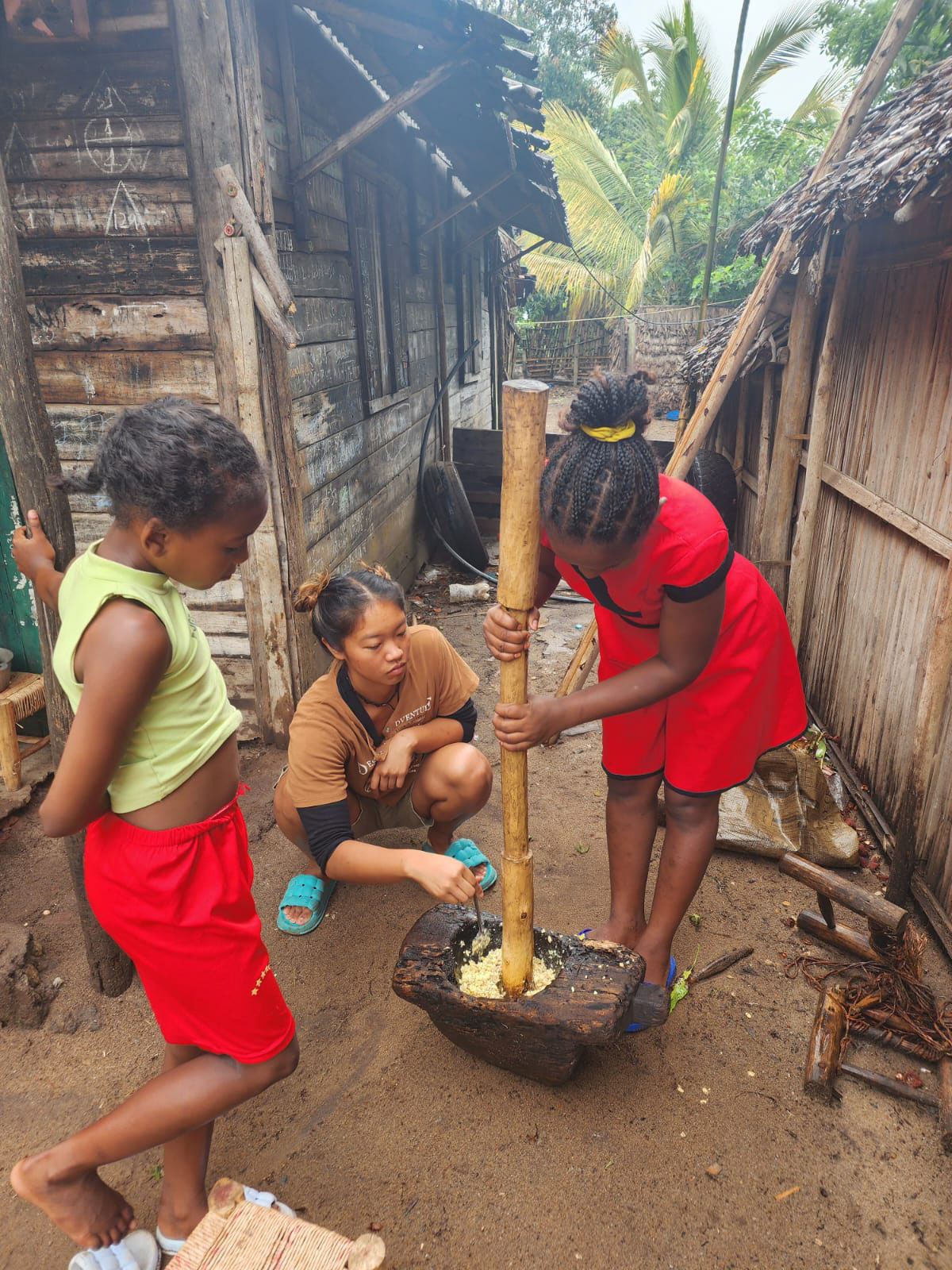
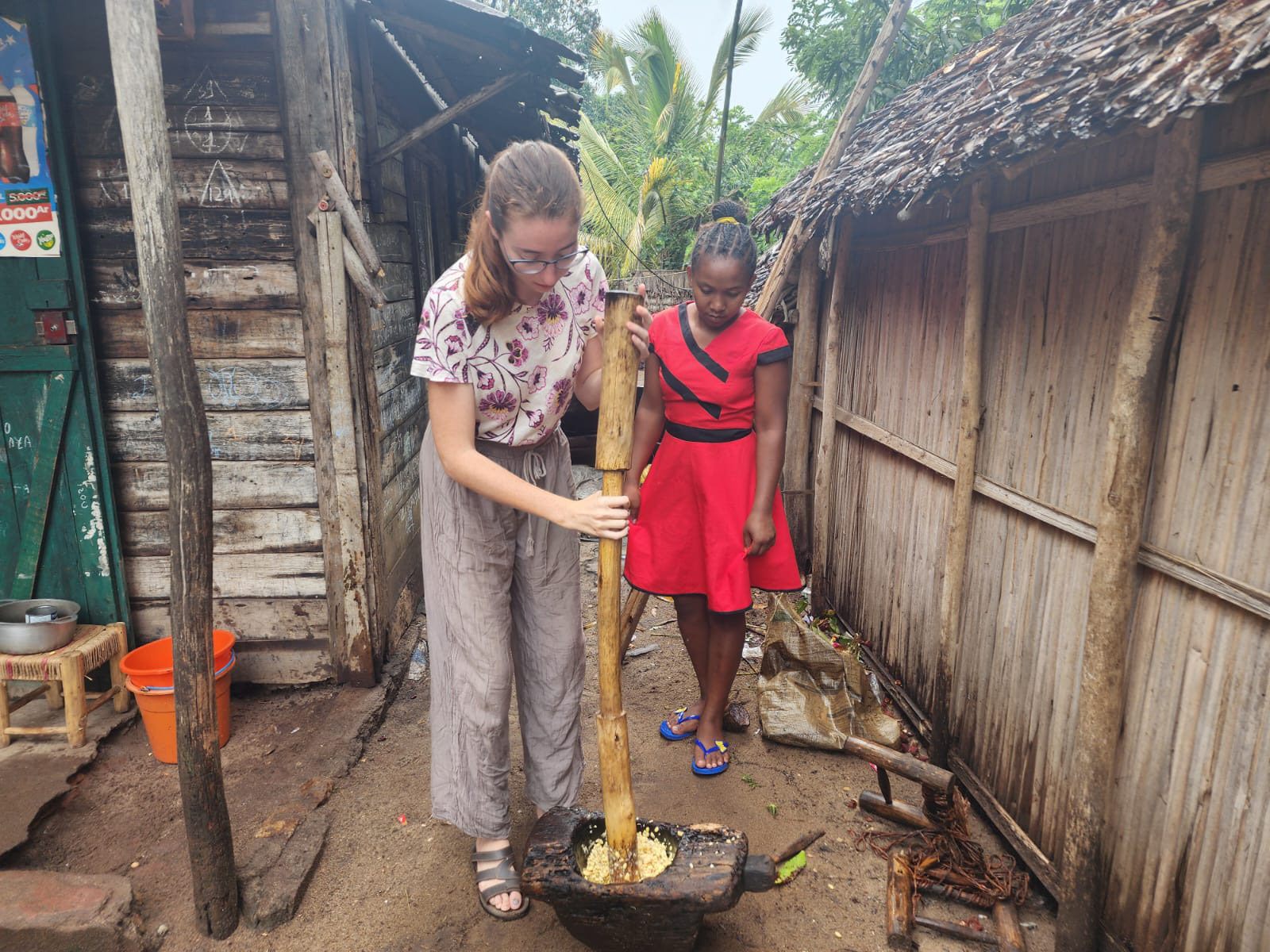
I've also taught community members how to make soy milk. It a fairly quick and easy process, and an affordable source of protein and calcium that many people in the community don't have enough of. My friend who runs a coffee shop is now making it every morning to add as an optional supplement to the coffee she sells for a little extra money! Since soy is not super common in Menatany, she is also experimenting with growing more of it in her home garden. Menatany gets a lot of rain so we're hoping it is a successful endeavor.
I trained some of the youth on gooney sack gardens. This is a useful practice for the north east where most of the soil is sand, so vertical gardens are good for providing small-scale farmers and families with controlled environments. We filled the sacks with 1/3 sand, 1/3 dark topsoil, and 1/3 animal waste. The center of the bag has a column of rocks for equal draining throughout the sack, and you fill the sack layer by layer in order to achieve this configuration. We made holes in the sack with spacing for small-root spices, and although the teaching was a success, the garden did not grow anything of substance because the chickens in the area ate all the sprout. I need to keep the garden in a fenced area if I want to make another.
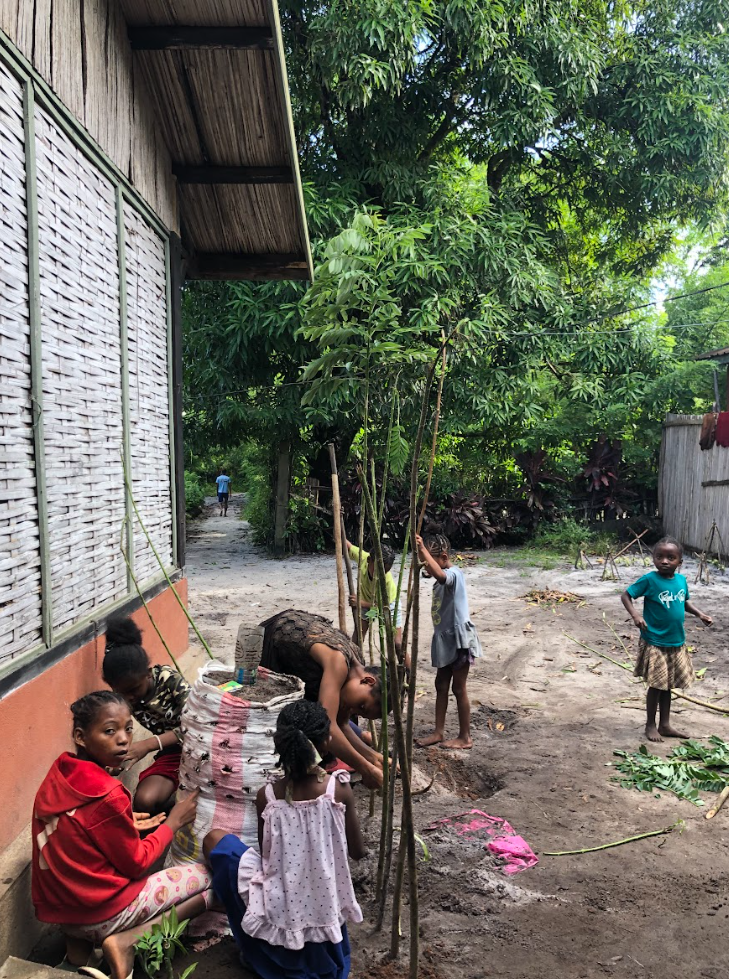
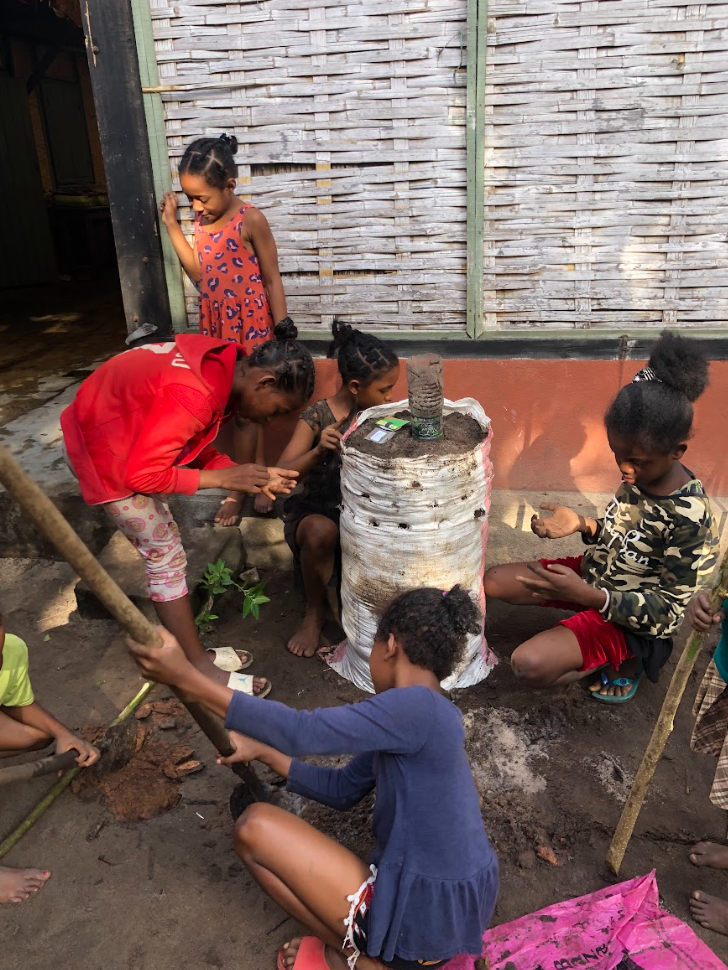
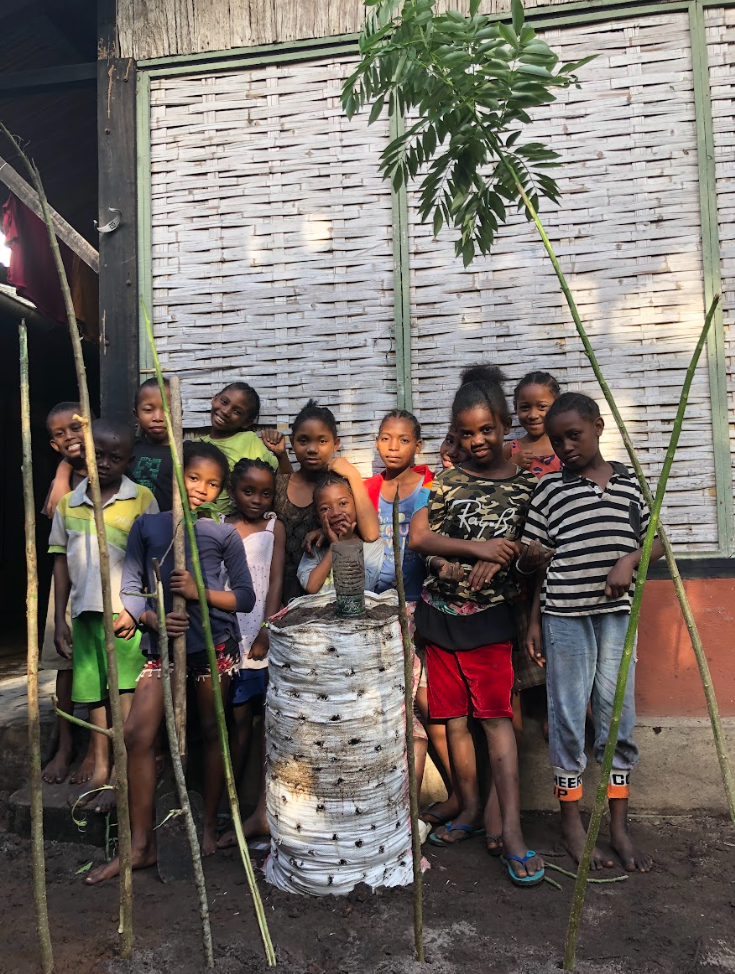

I learned how to woodwork apiaries for bee farming. The bee house is essentially a wooden box that neatly holds frames with taut string crossings. This way, bees can easily build honeycombs in the dry container when it rains. Making it was a pretty simple task that could be taught easily to other people interested in beekeeping and harvesting honey.
This is the first farm that I worked on. I was given a good amount of land to plant vegetables and worked for months to clear it and improve the soil. I mostly worked alone (expect for the help of my dog Fifi every day), so it took a really long time to prepare it for planting. I was able to sprout some cucumbers, tomatoes, and taro, but one Friday morning, my months of work was destroyed when it was overrun by a herd of cows. This was yet another important lesson on the necessity of fences.

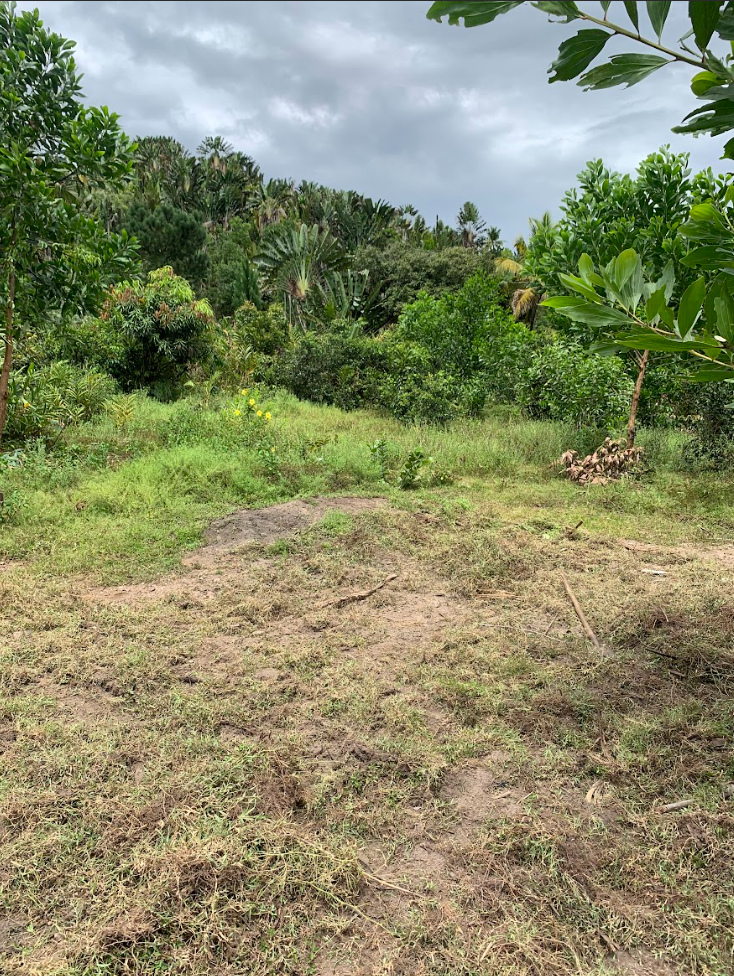
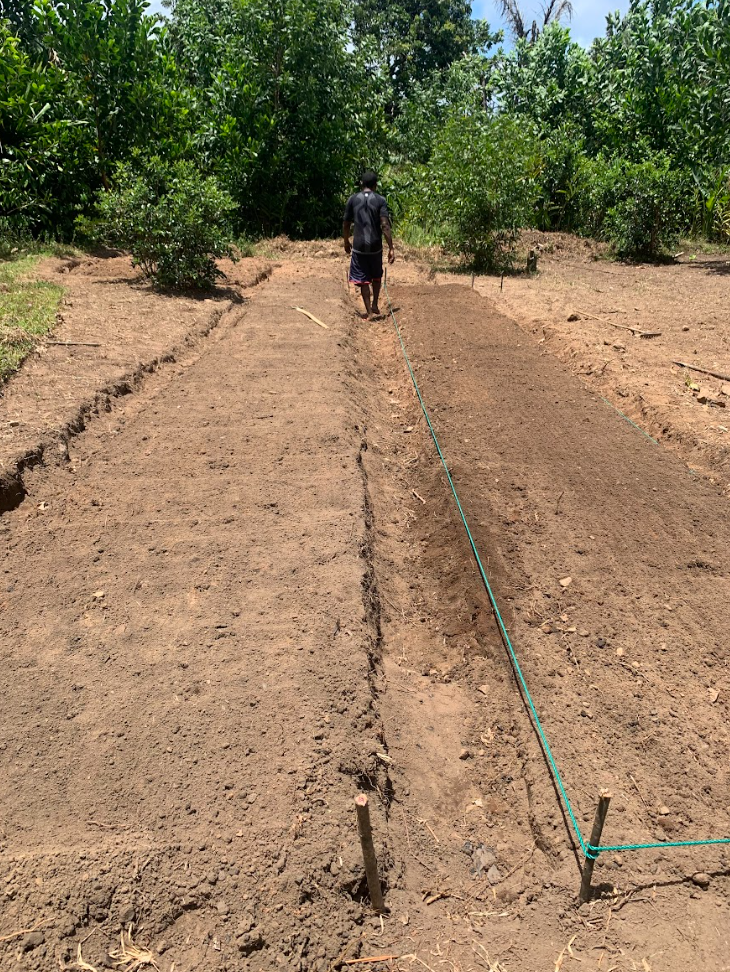

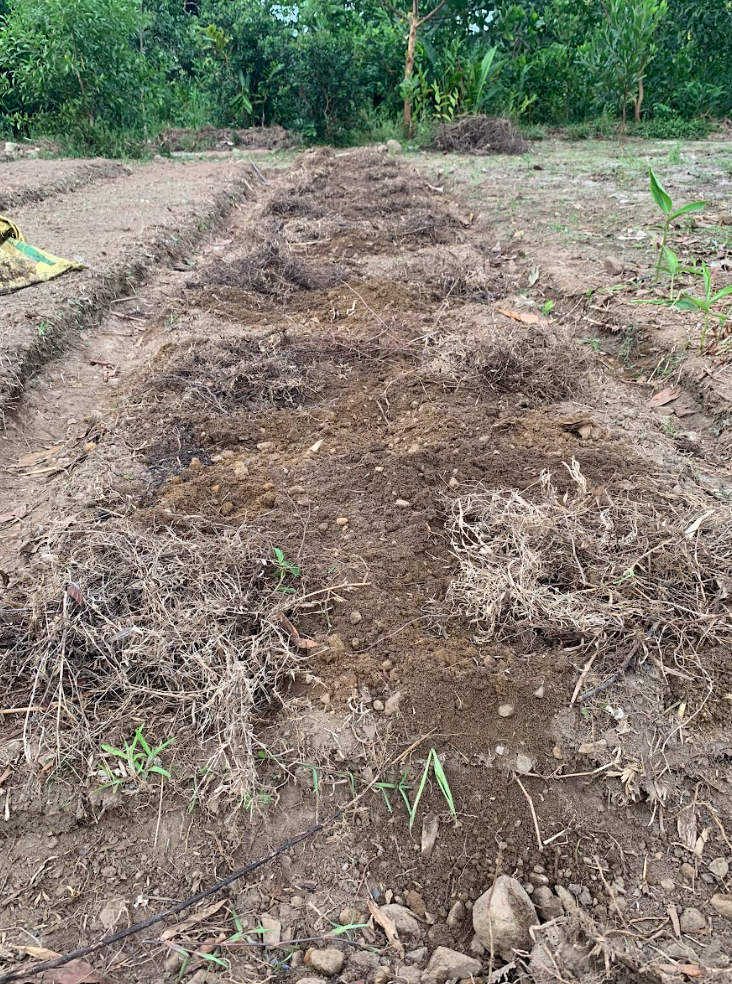

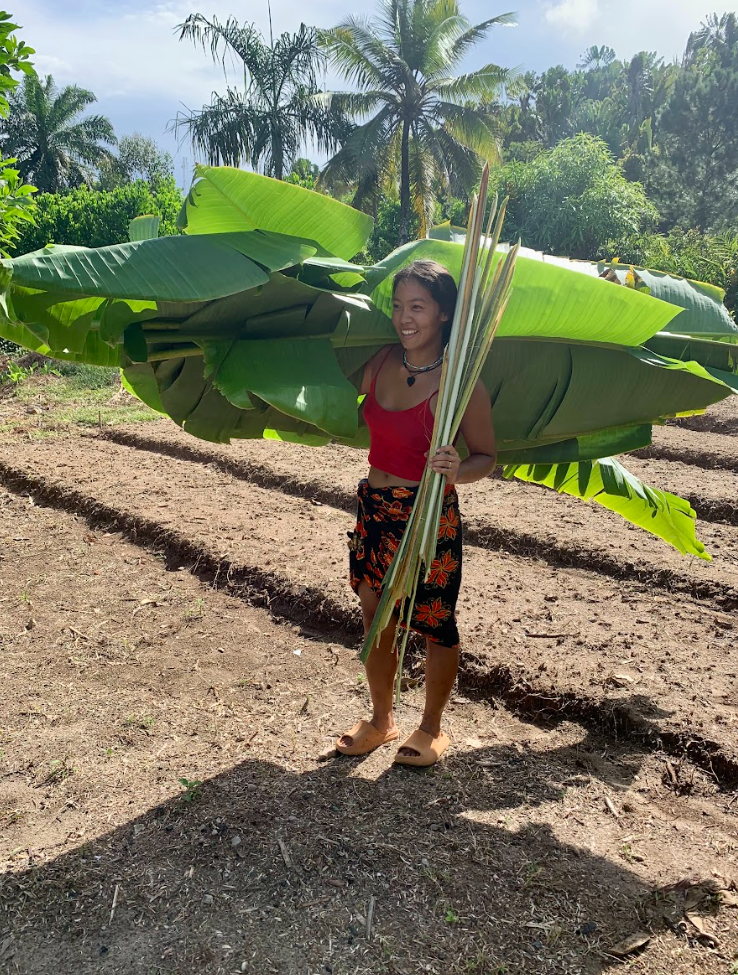
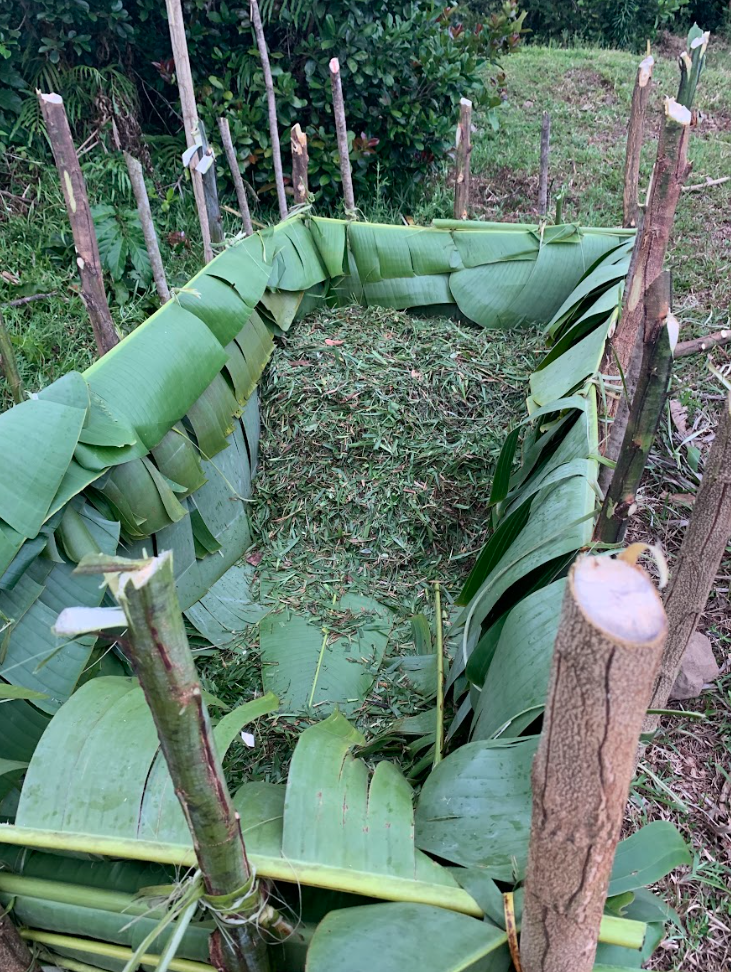
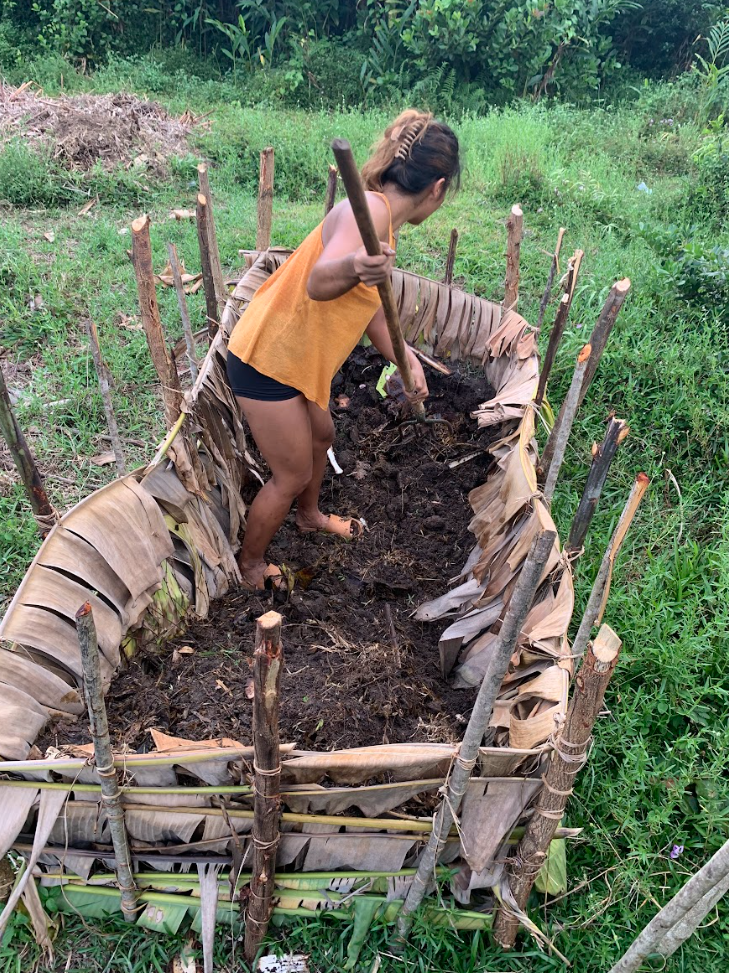
Luckily, my compost pile survived (probably because I made a fence around it). I was able to transport the compost to be used to make more at my women's group's farm.
I just learned that some of the men in the machine shop across from my house have been inspired by my solar dryer and have invested time in making their own (much better constructed than mine)! They can be folded up like an easle so they're much more portable than my iteration. I talked to the man who made it, who seemed hesitant to tell me about his new business he is trying to start selling these solar dryers. I think he was worried I would be angry that he "stole" my idea, but I made sure to congratulate him on his particular design and business plan. I also told him that anything I make in Madagascar is for others' benefit, not mine, so I'm super pleased that he found value in this product. I hope it turns out to be a great success.
In these pictures, you can see people have already started drying moringo to make moringa powder. Moringa is a highly noutritious antioxidant known for lowering blood sugar and cholesterol.
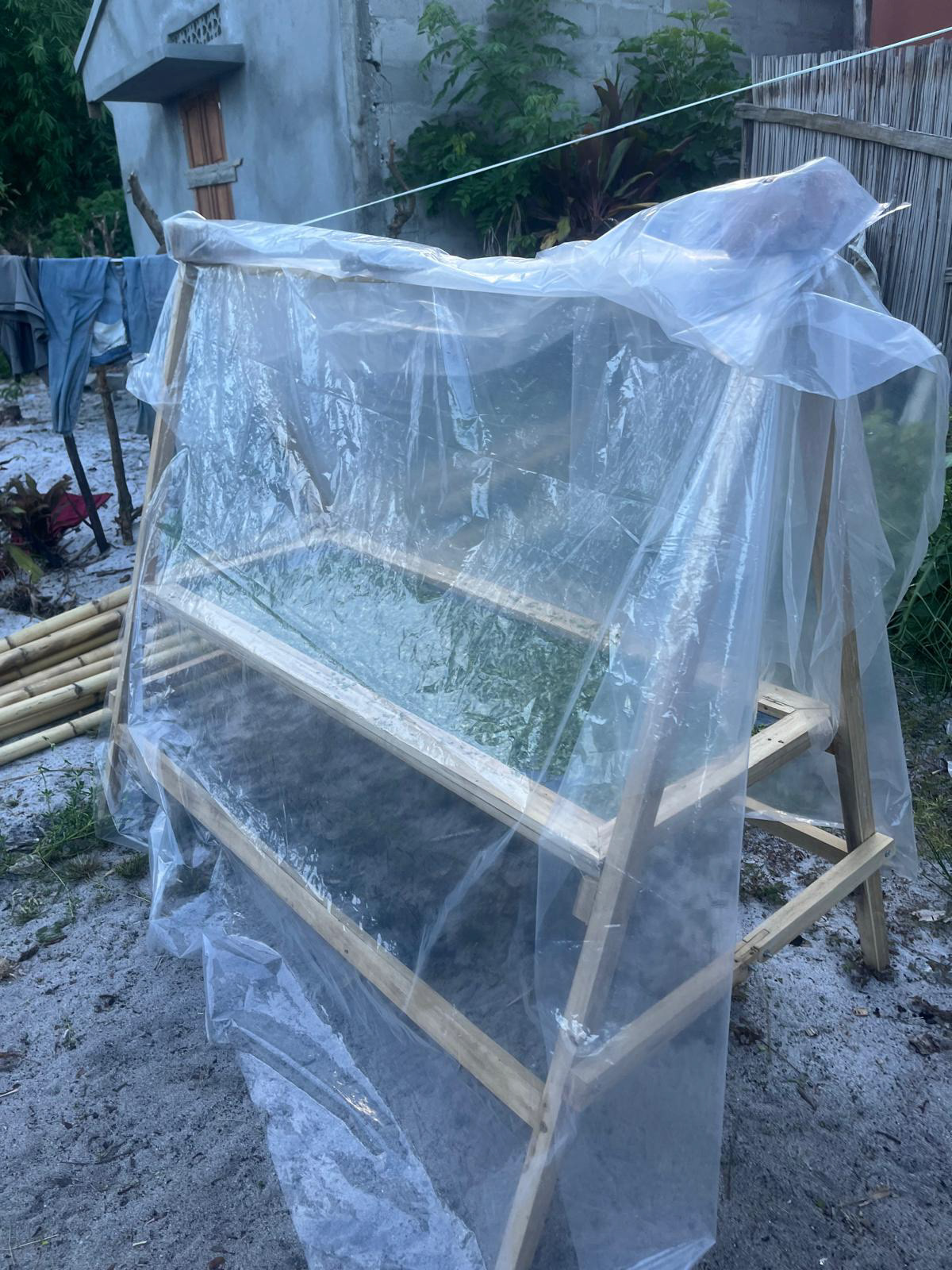
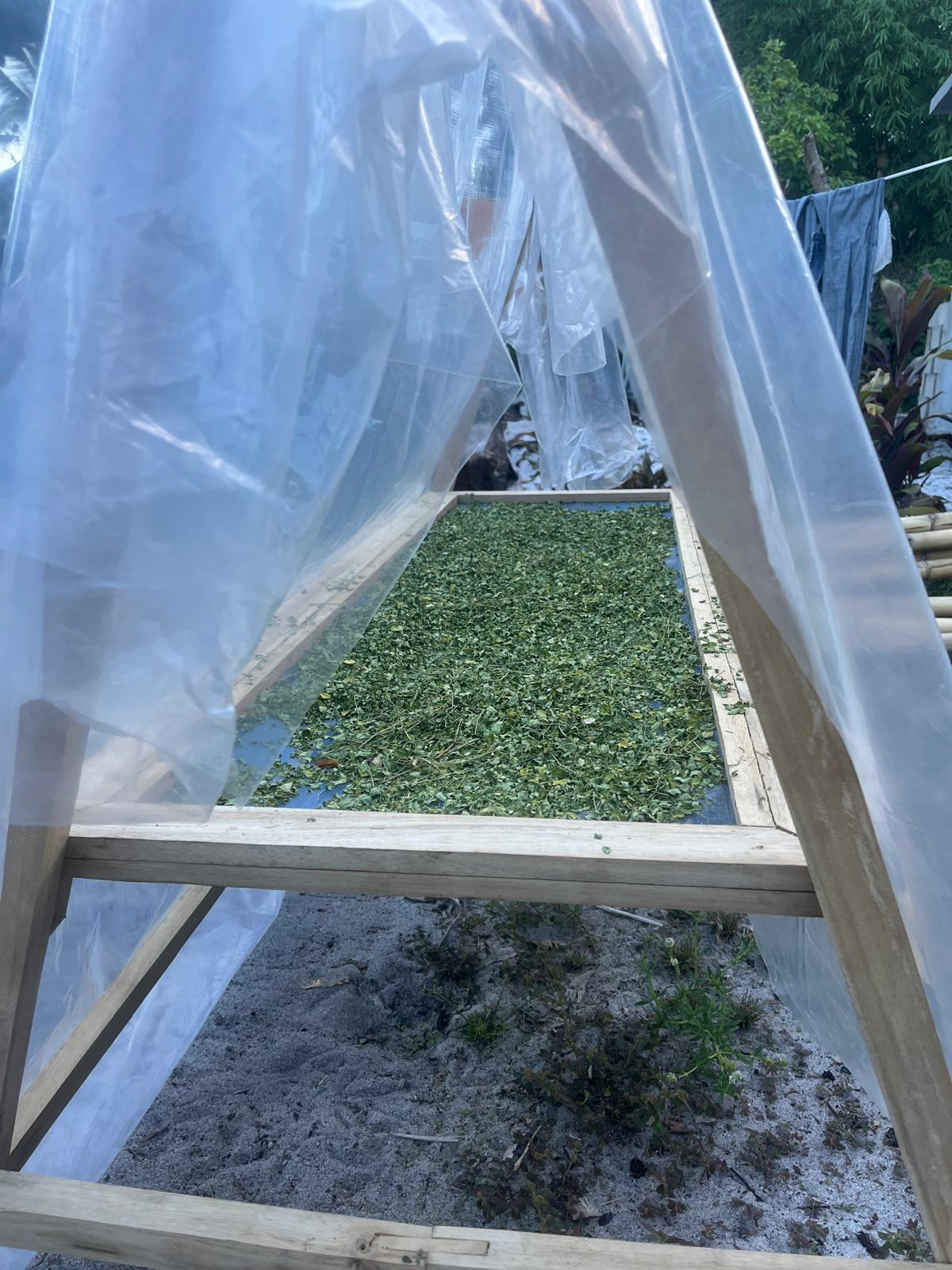
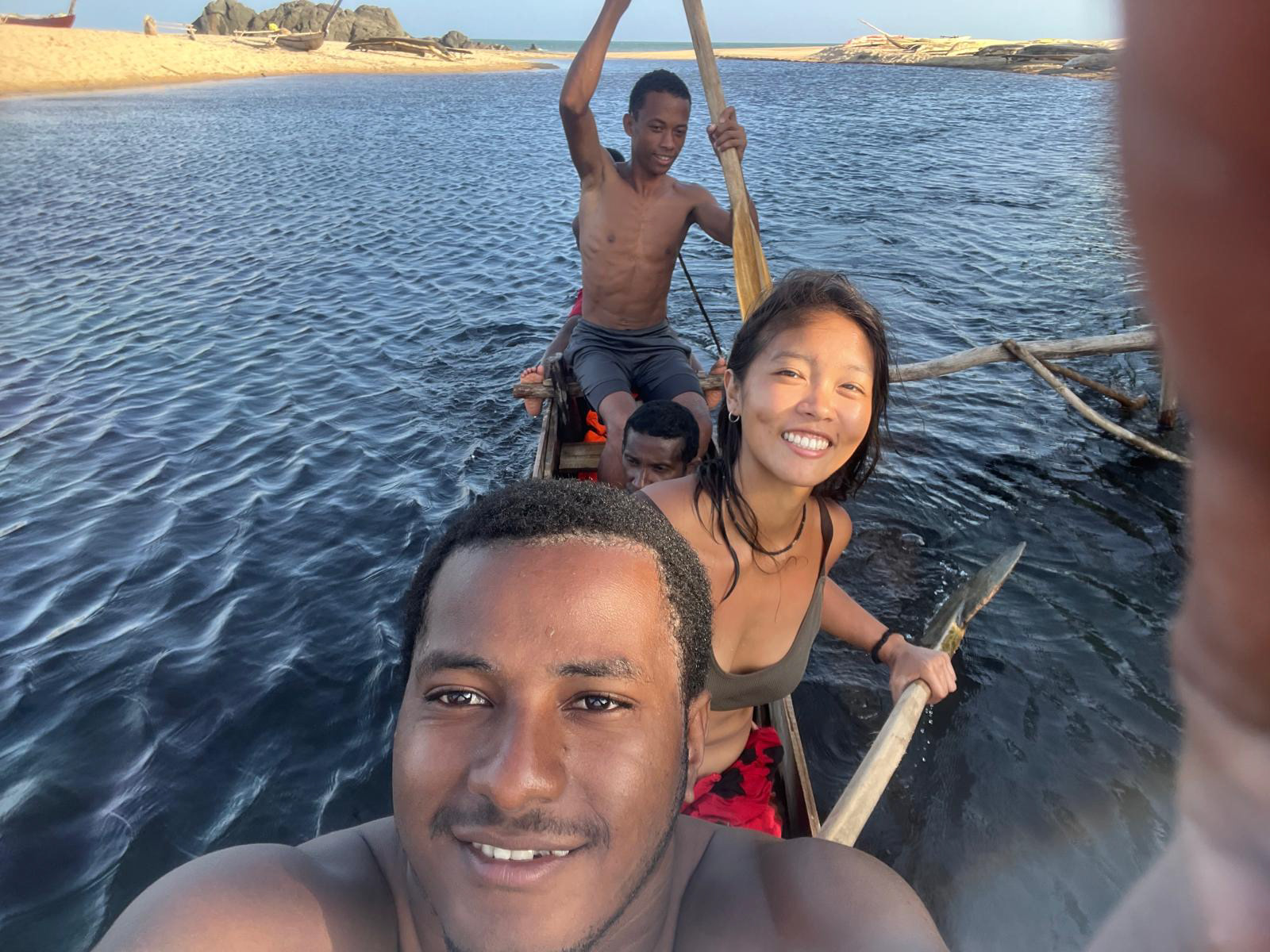
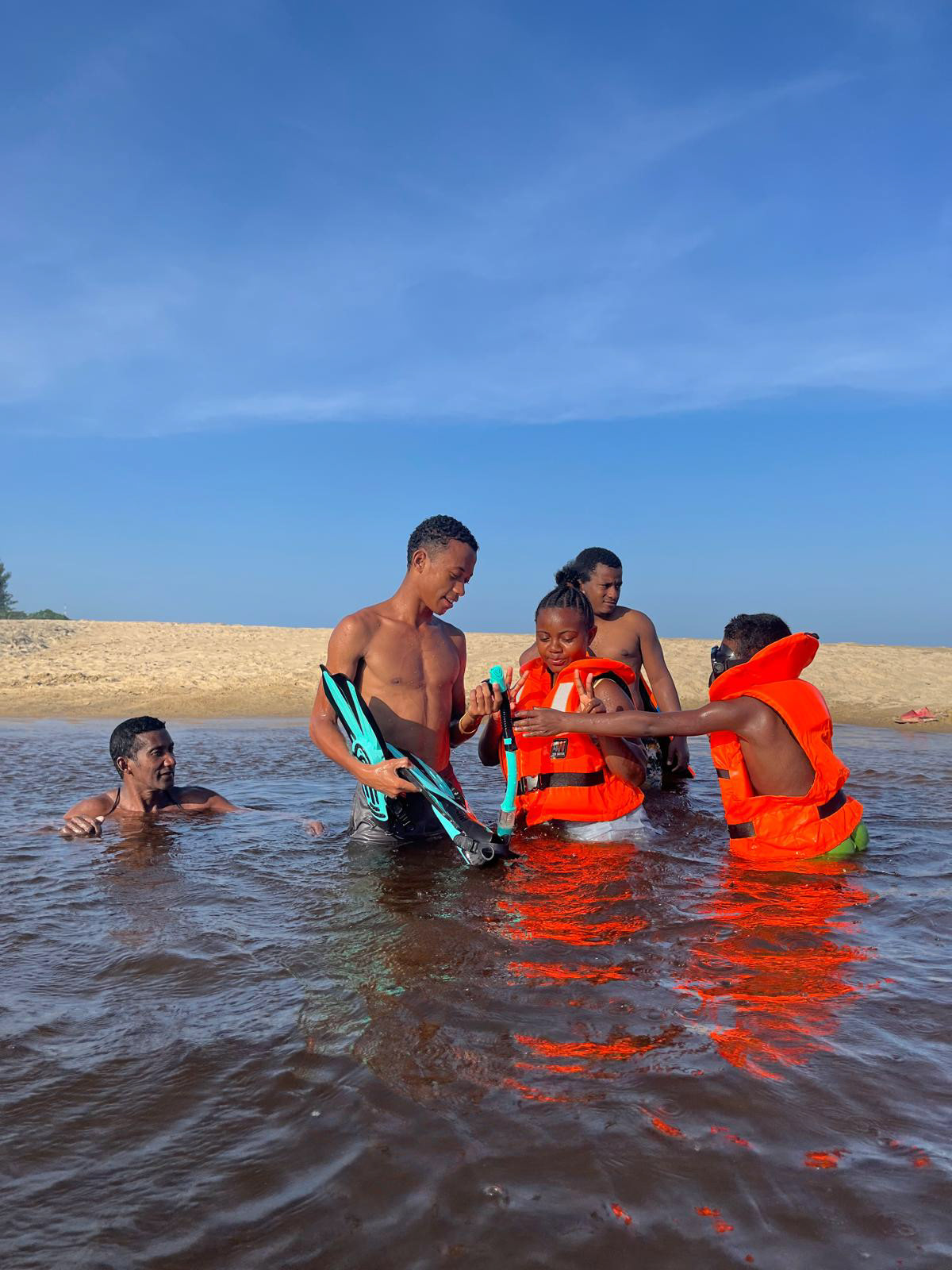

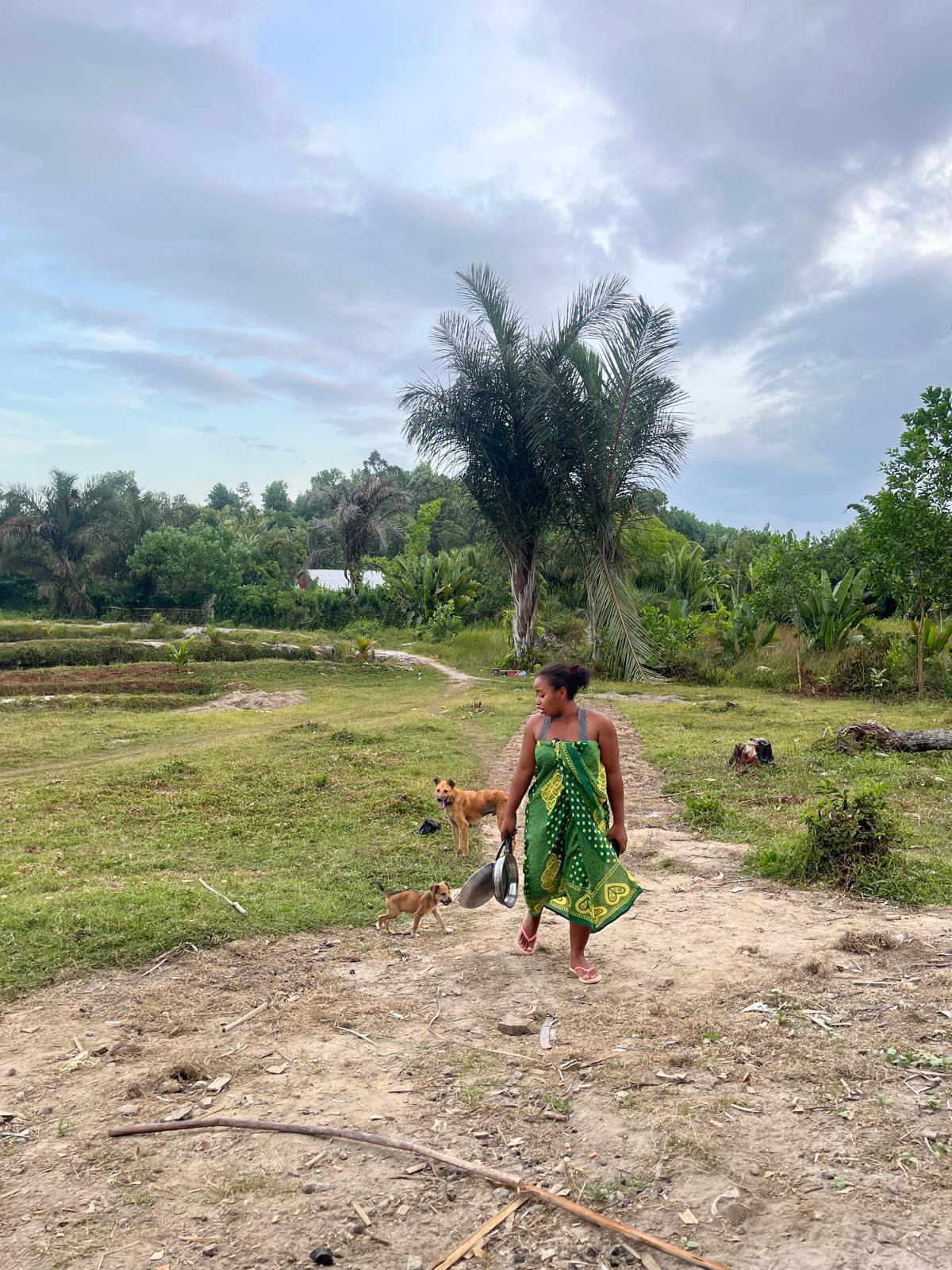
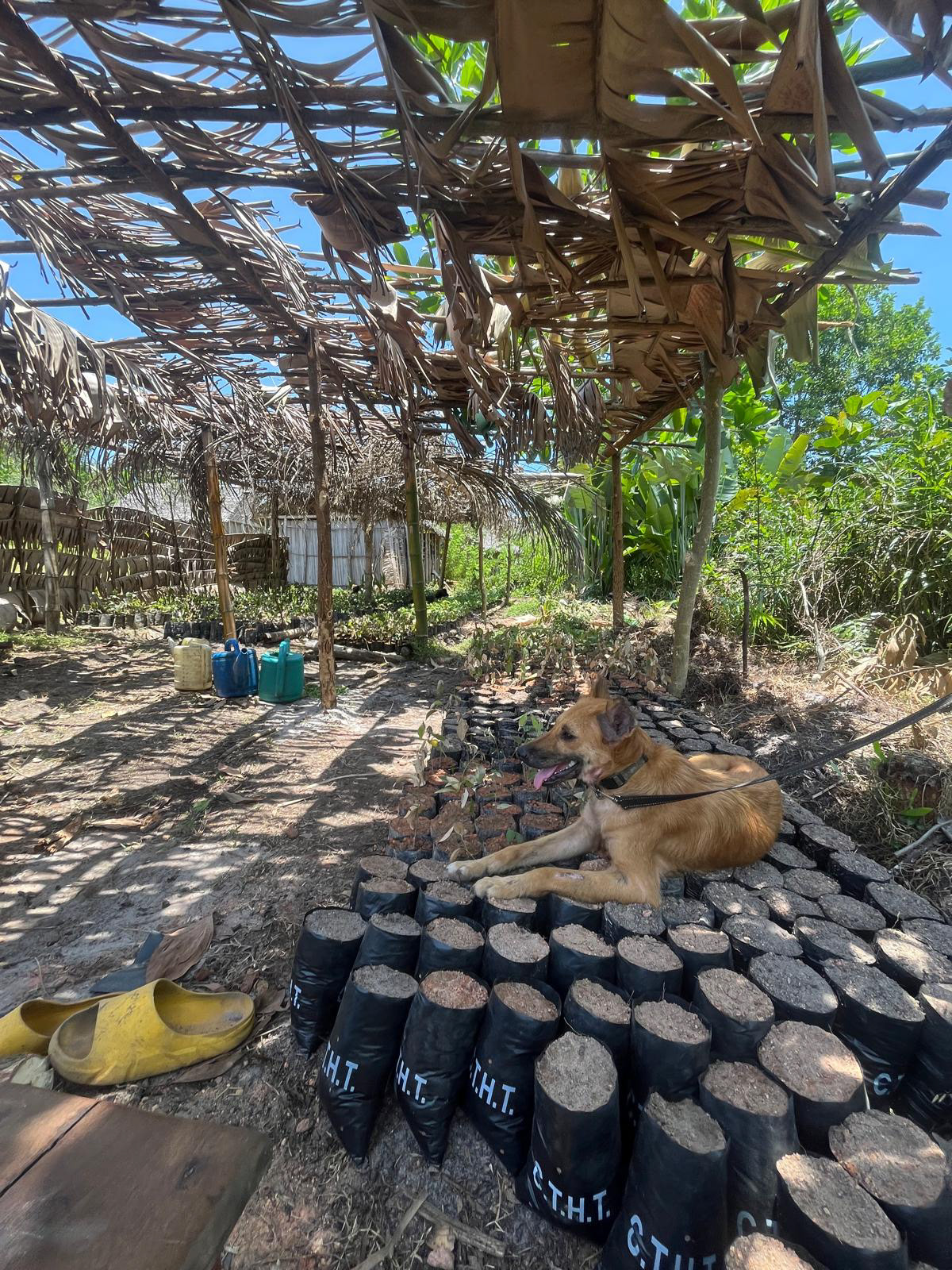
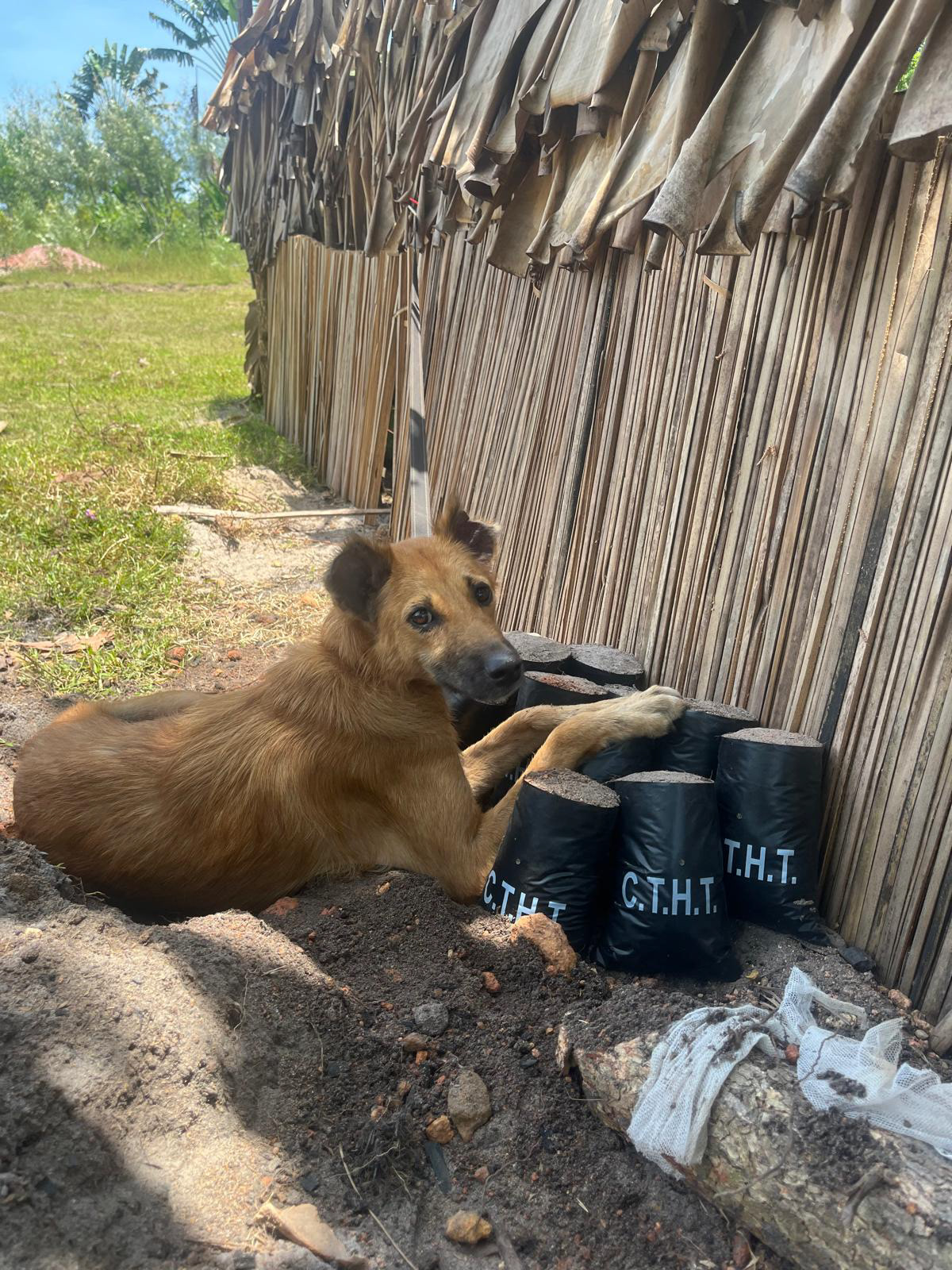
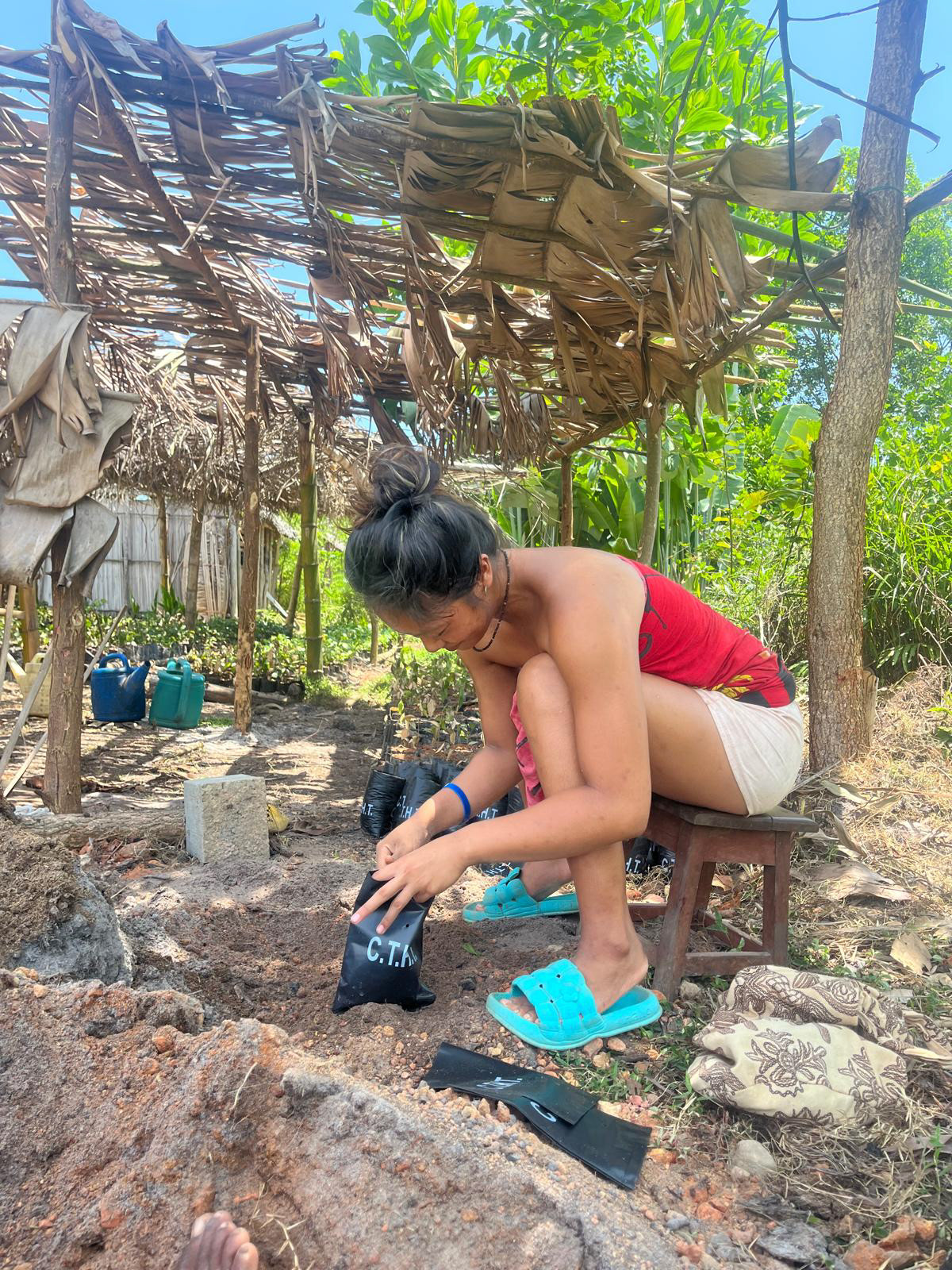
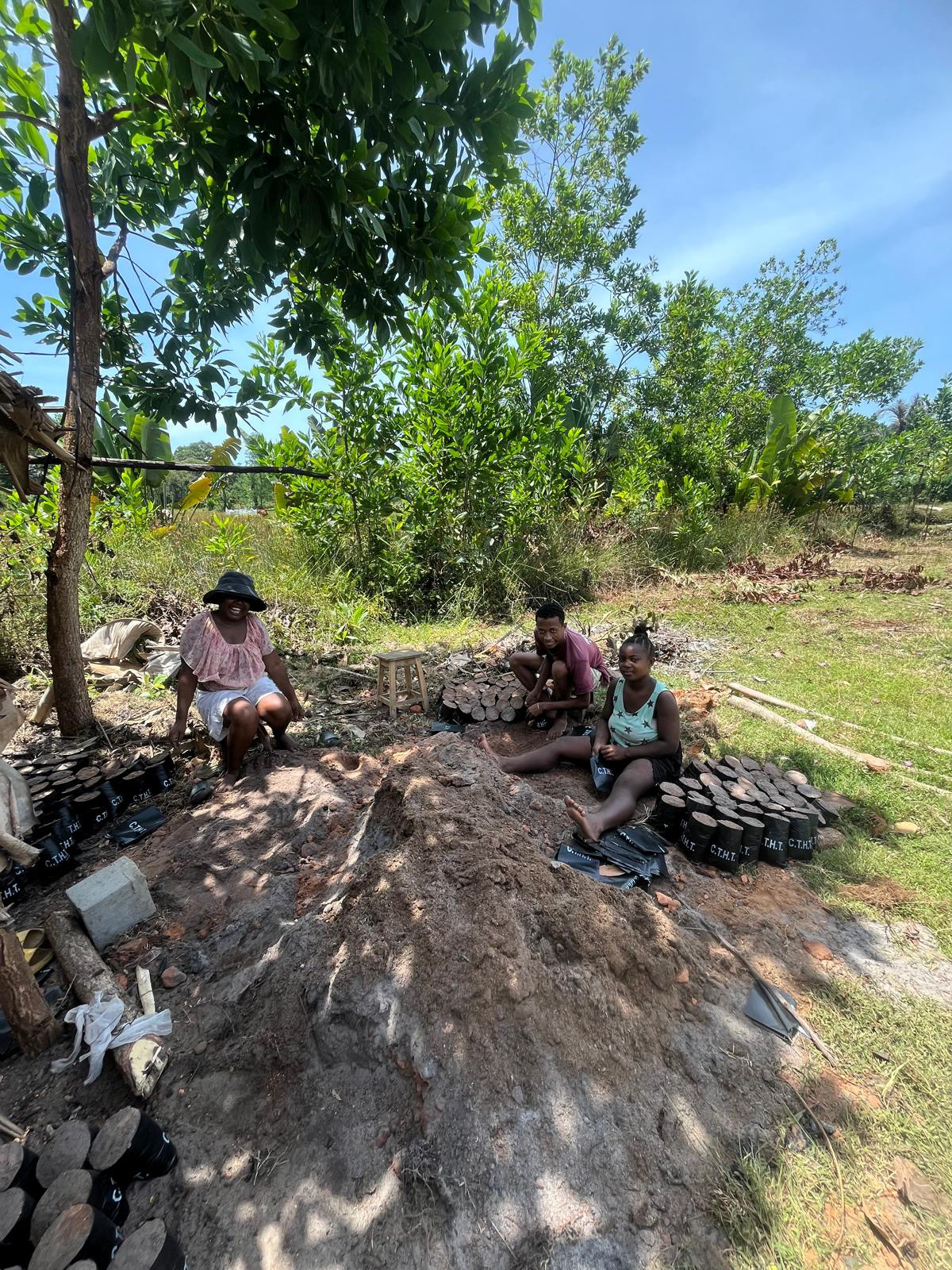

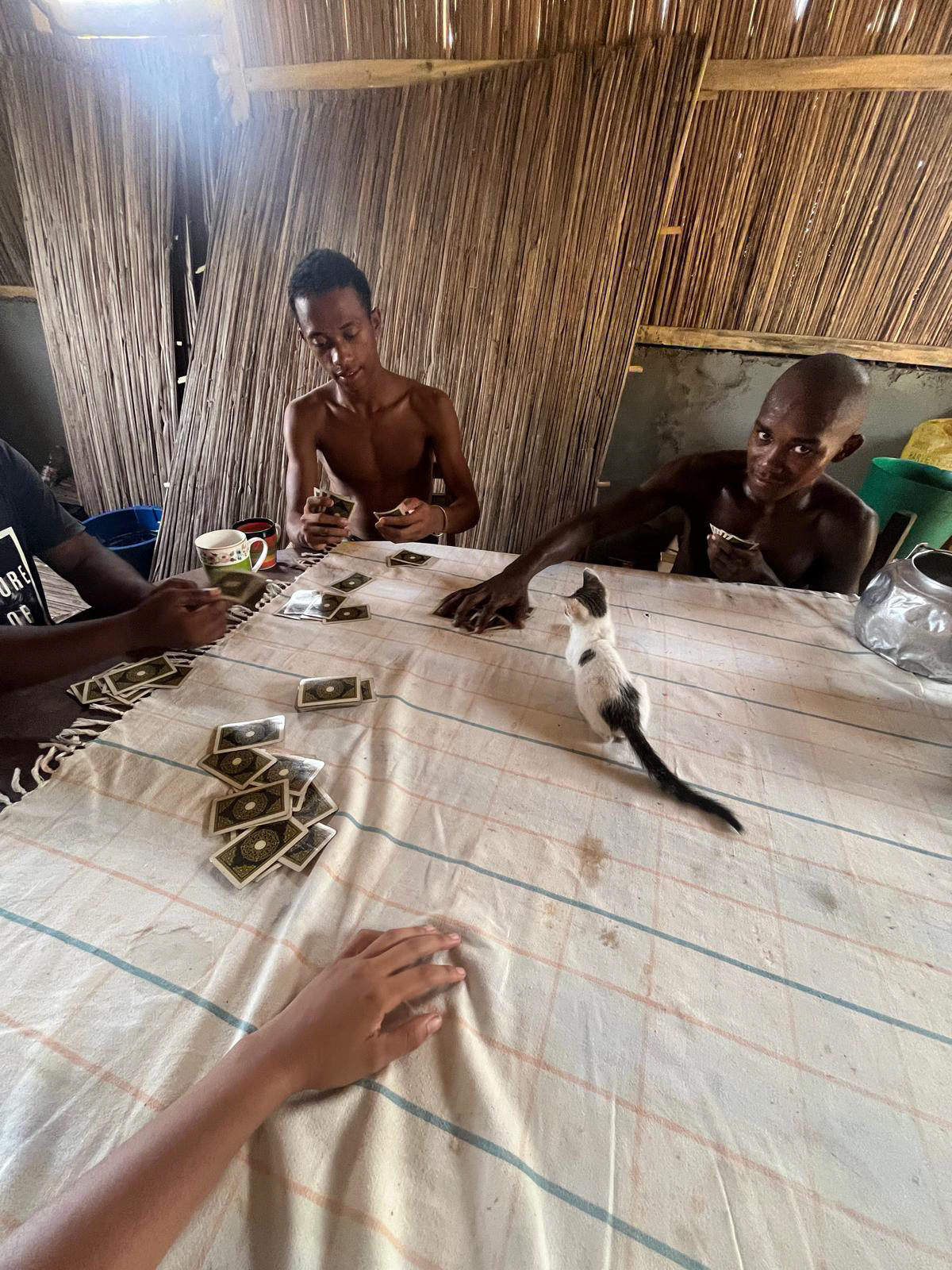
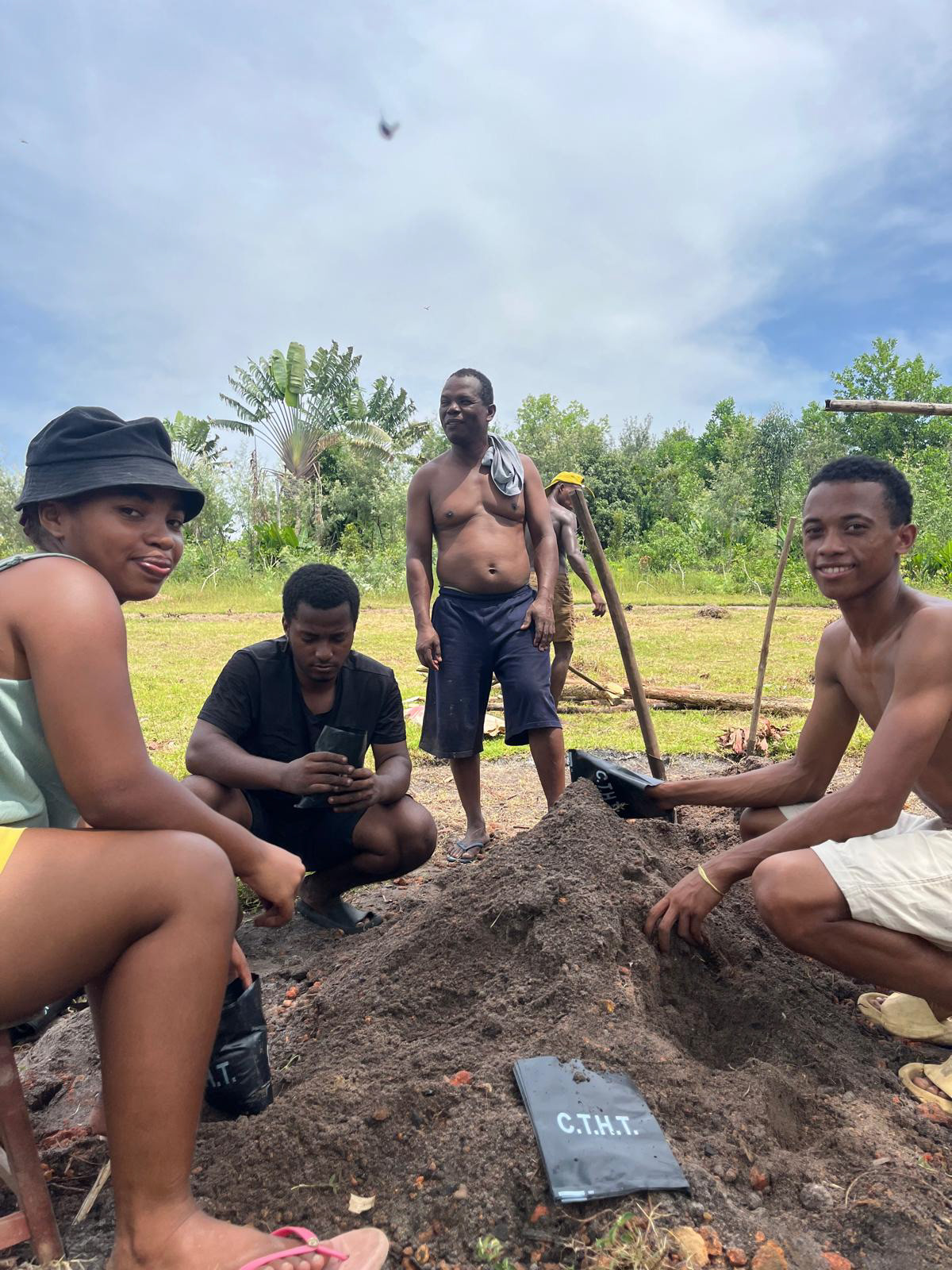
My supervisor invited me to a training that he was hosting for university students studyingg agriculture in Fenerive and Tamatave. This training provides hands-on lessons in making a tree nursery! We create the medium in which we plant the seedlings with nearby soil, compost, sand, and clay and pack them into bags provided to the training free from a company my previous counterpart works for now (see the picture of us and the two dogs sitting on chairs). The training was a four-week program in which we planted cinnamon, lemon, clove, and coconut trees. We also constructed the shade structures/roofing for the nursery.
We're still bagging more saplings even after the students have completed their training in agroforestry, and our goal is to plant/sell 20,000 saplings across the east coast.
In other pictures, you can also see us after a hard work day on our excursions to natural pools, the ocean, playing with the dogs, and playing cards.